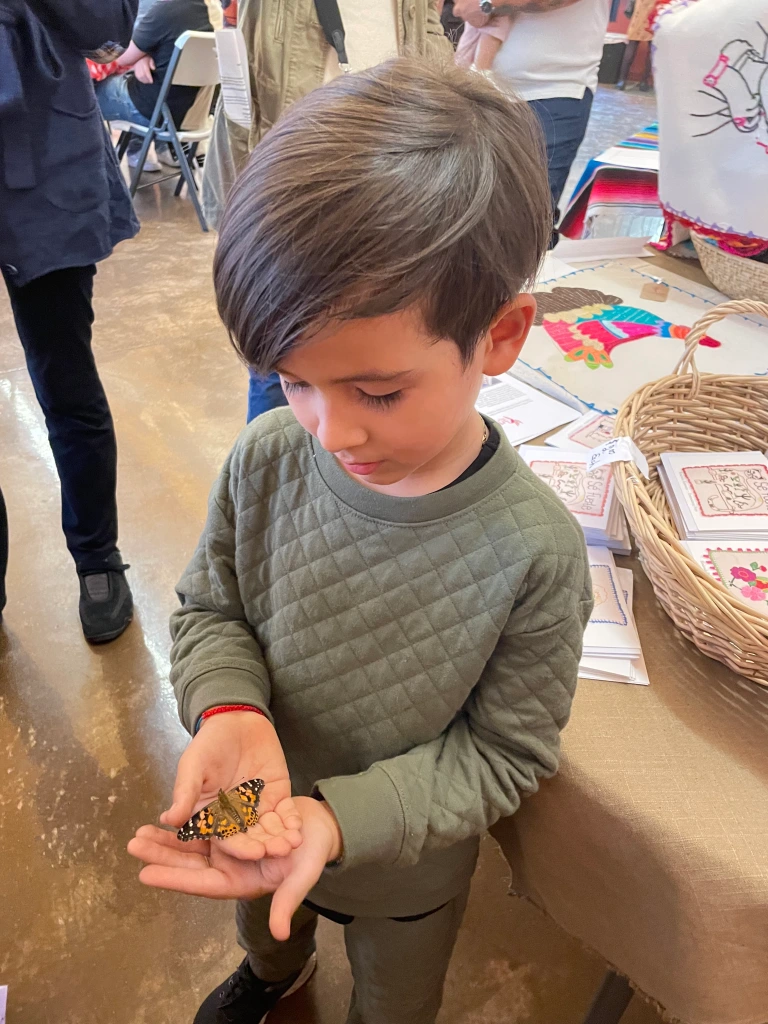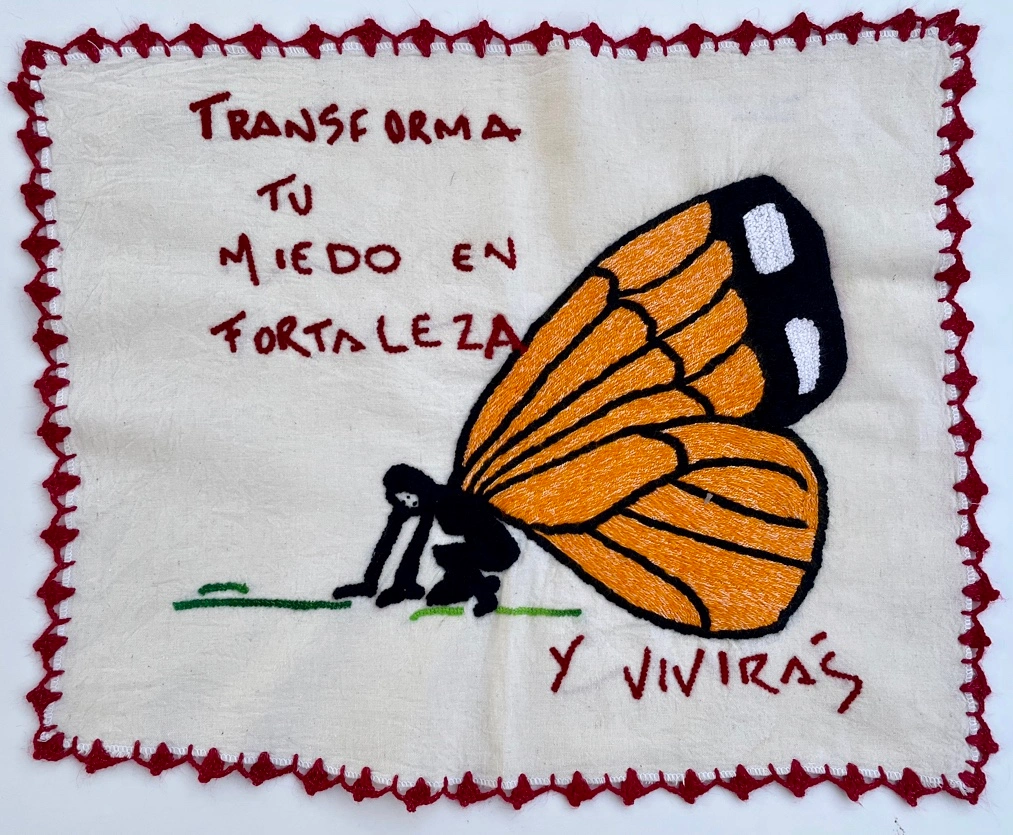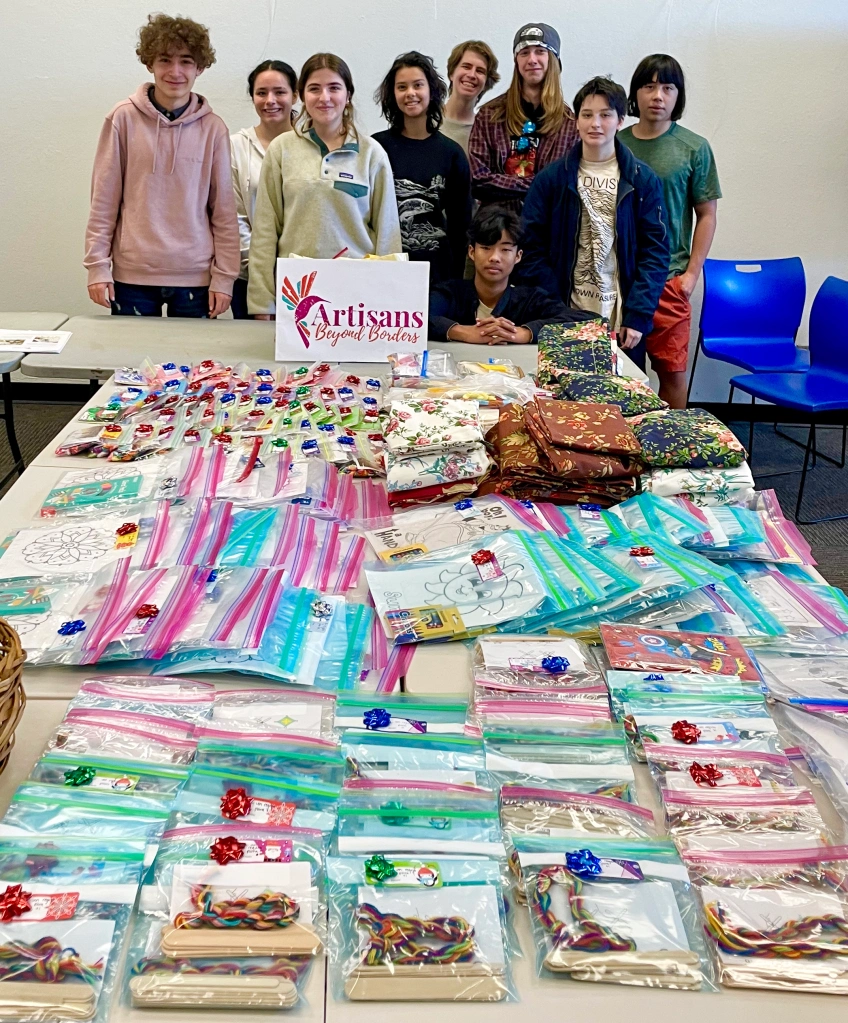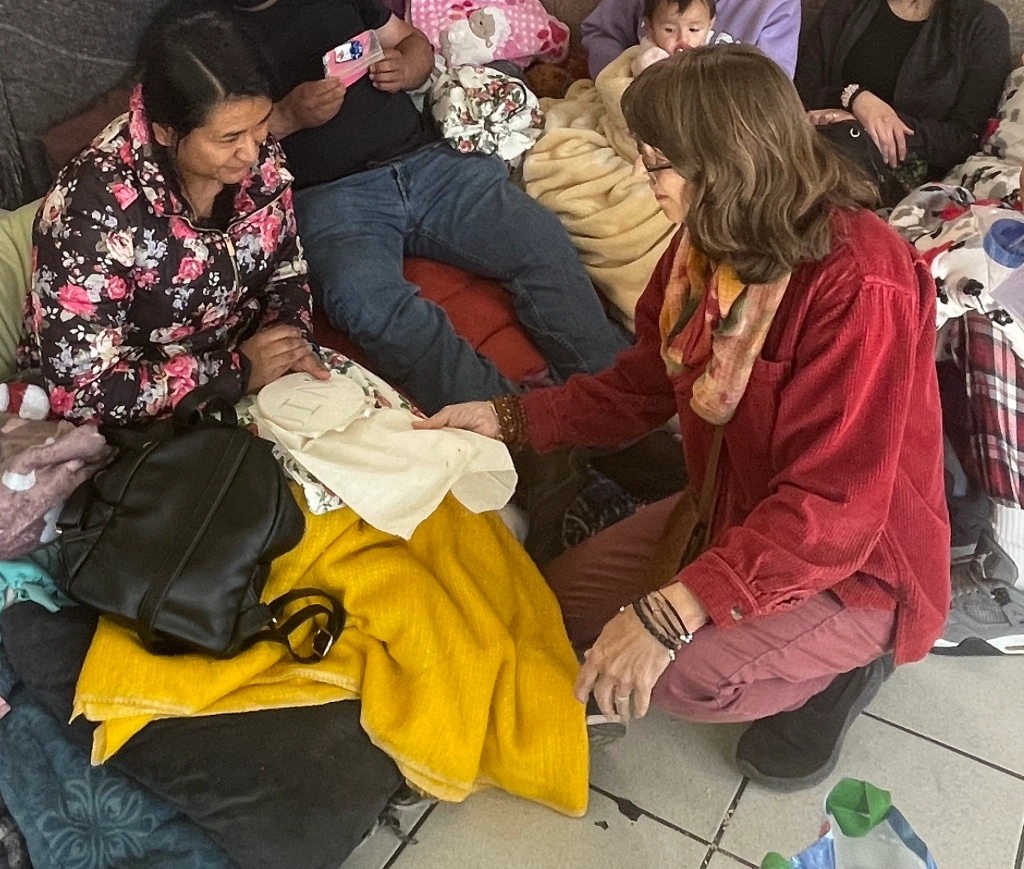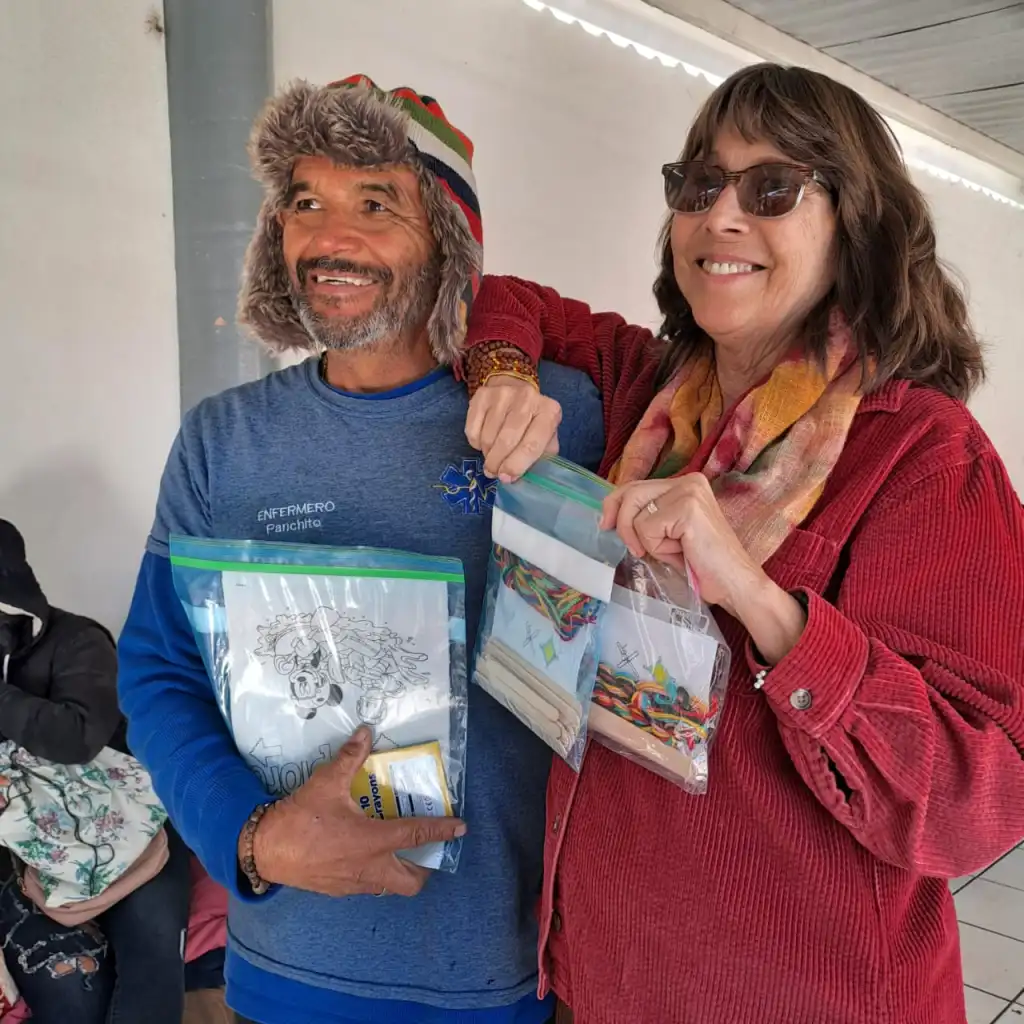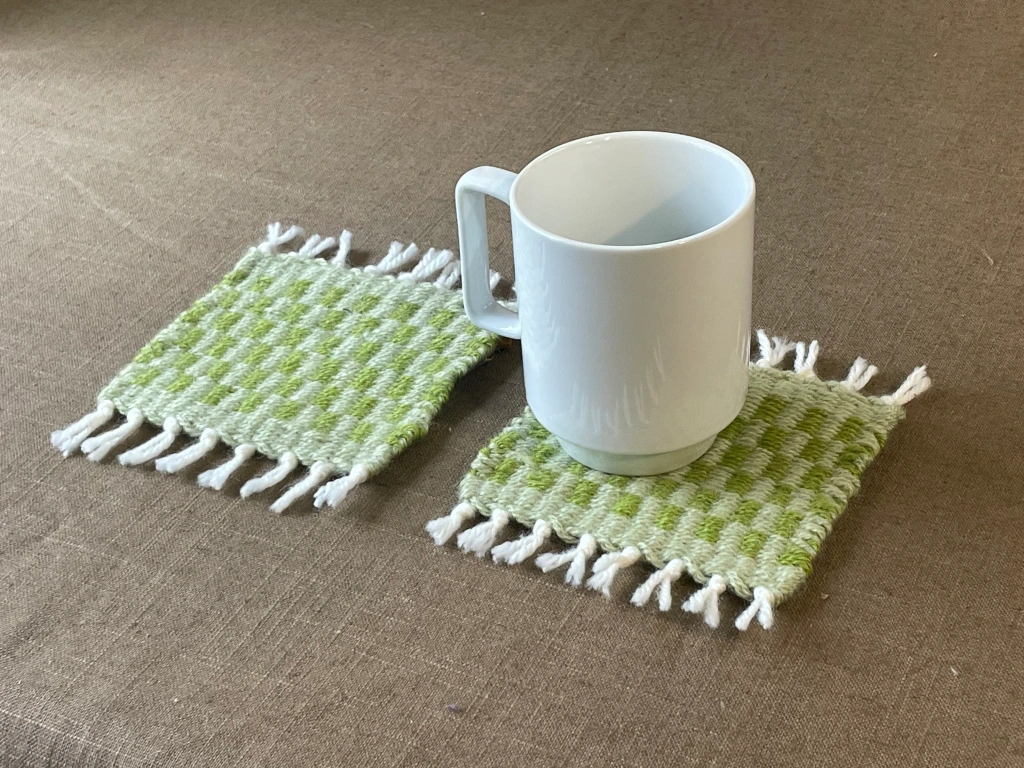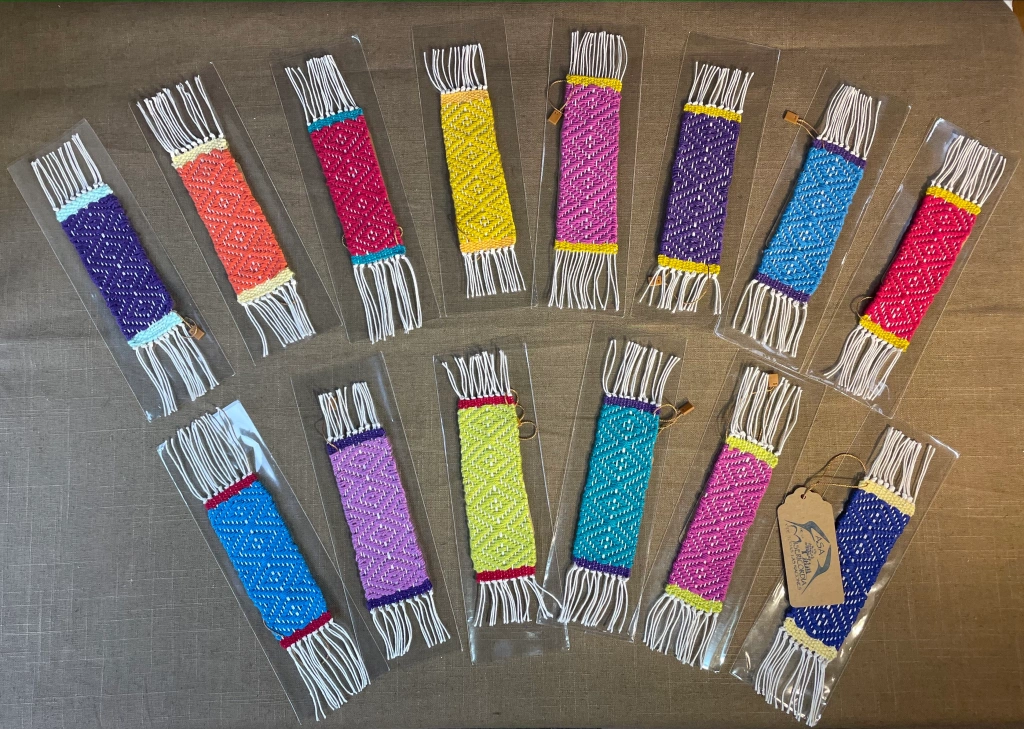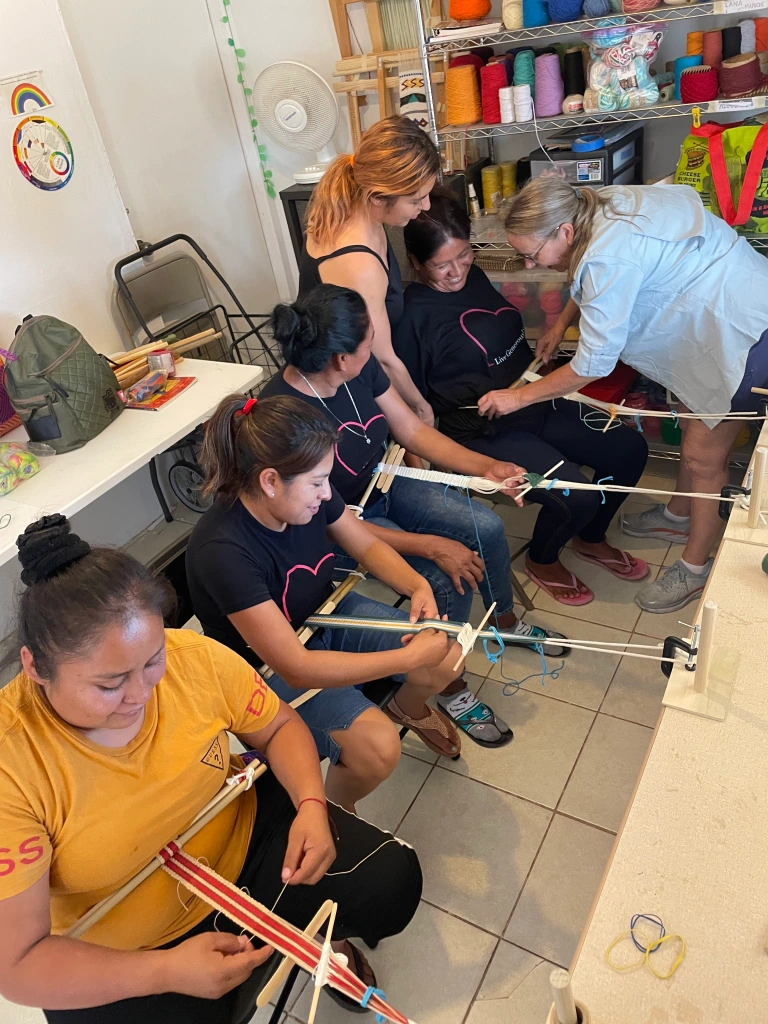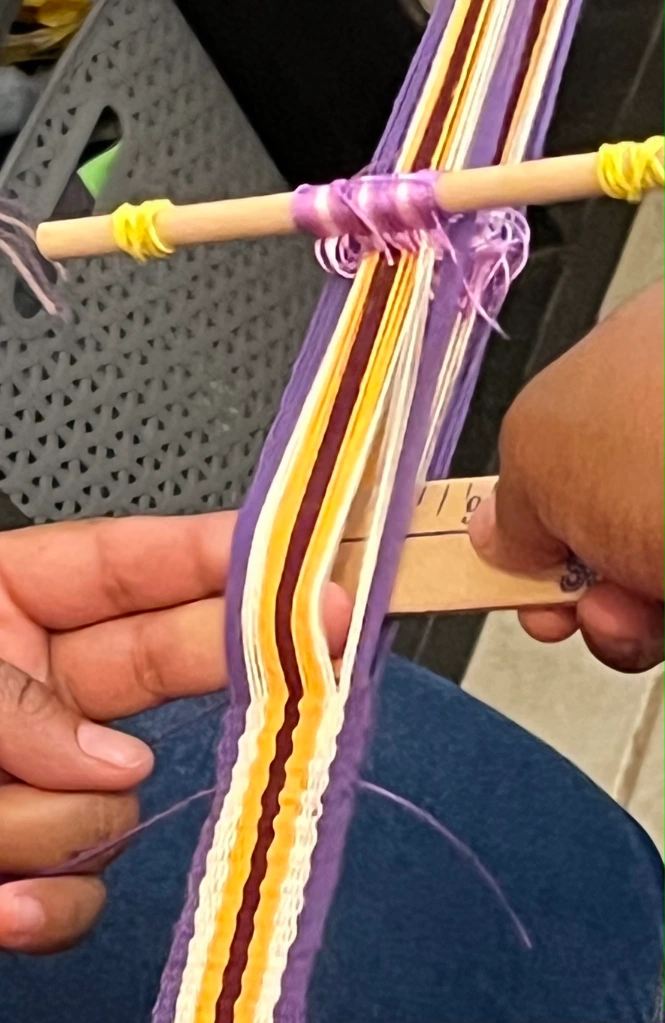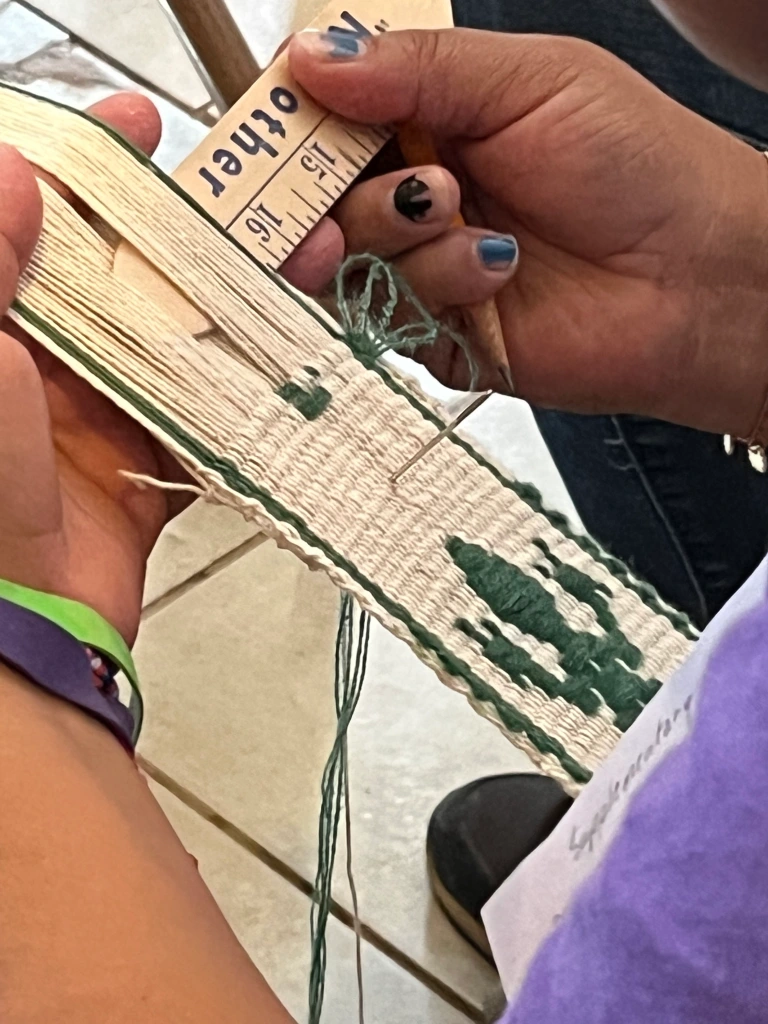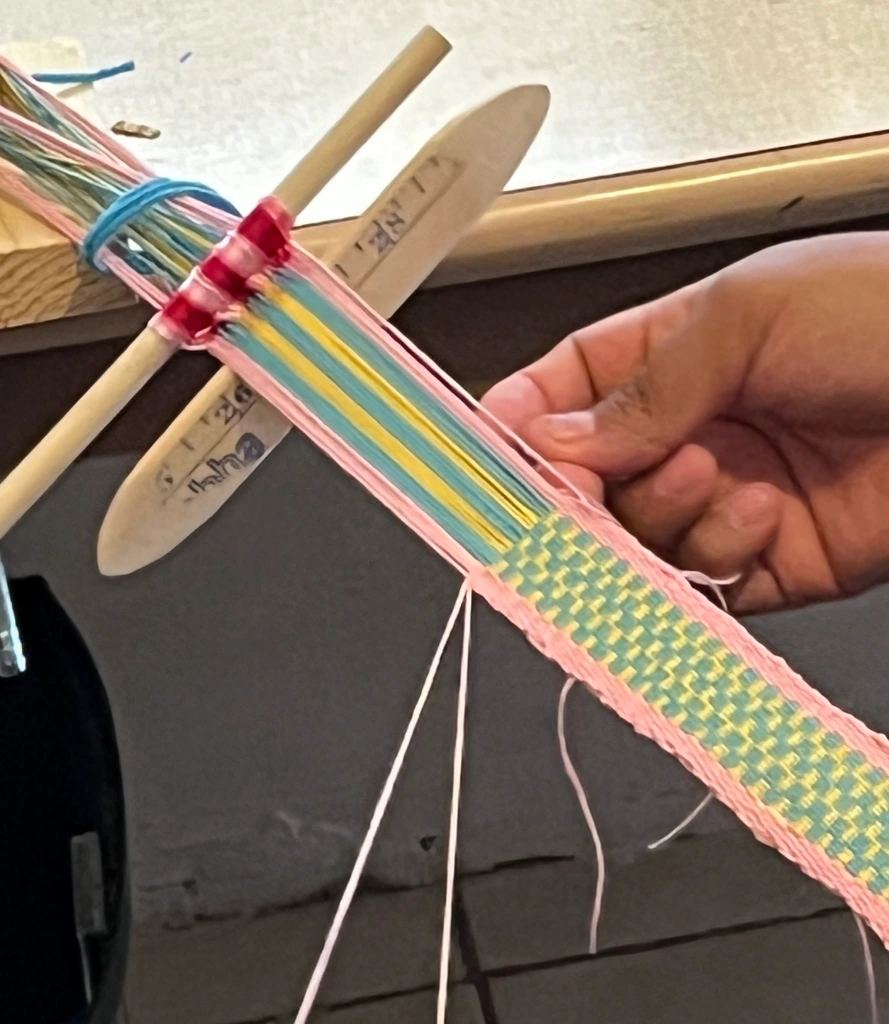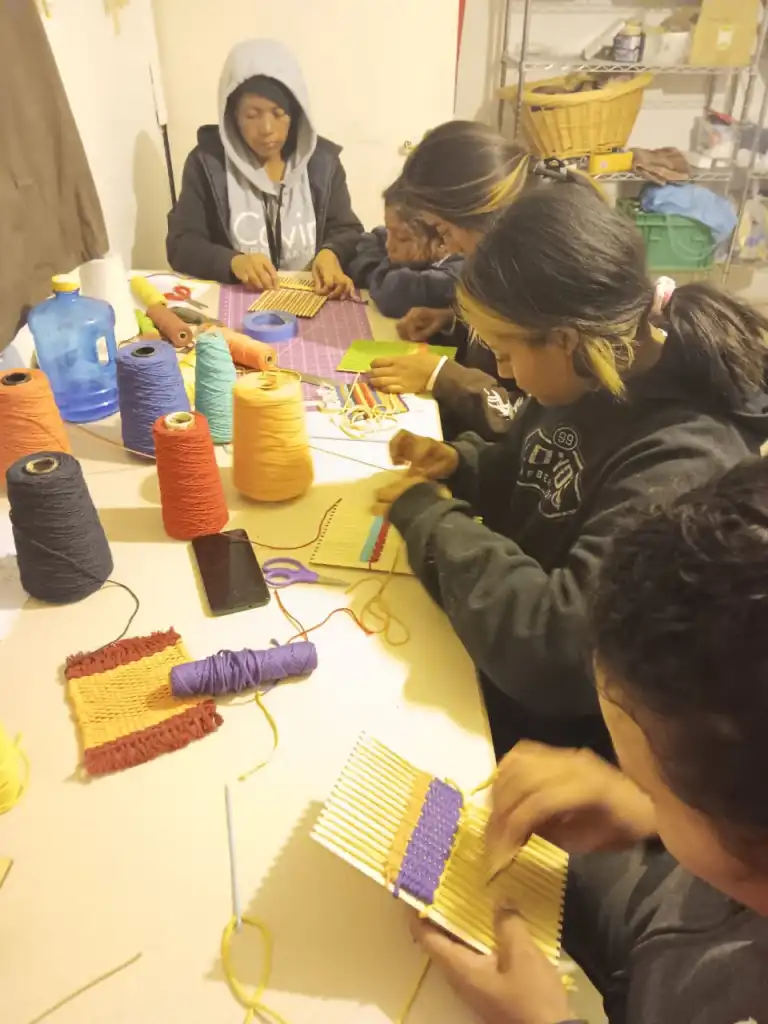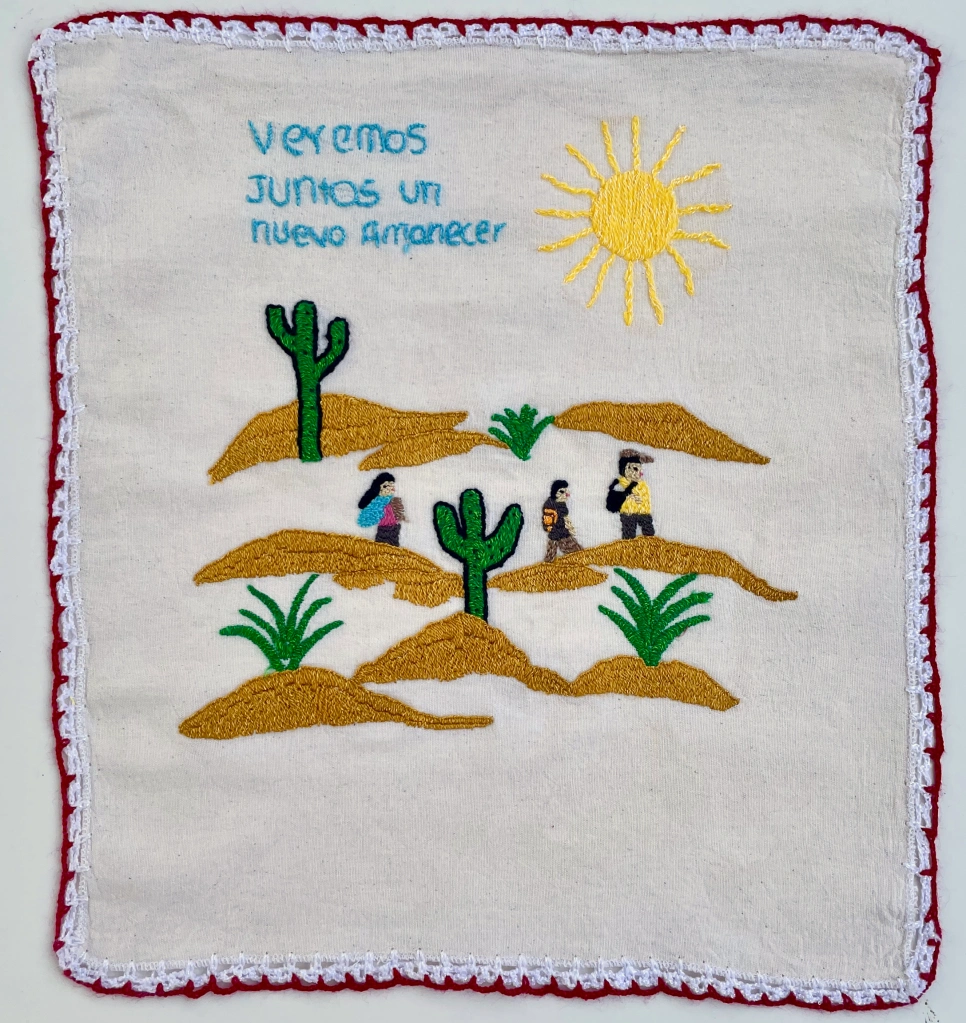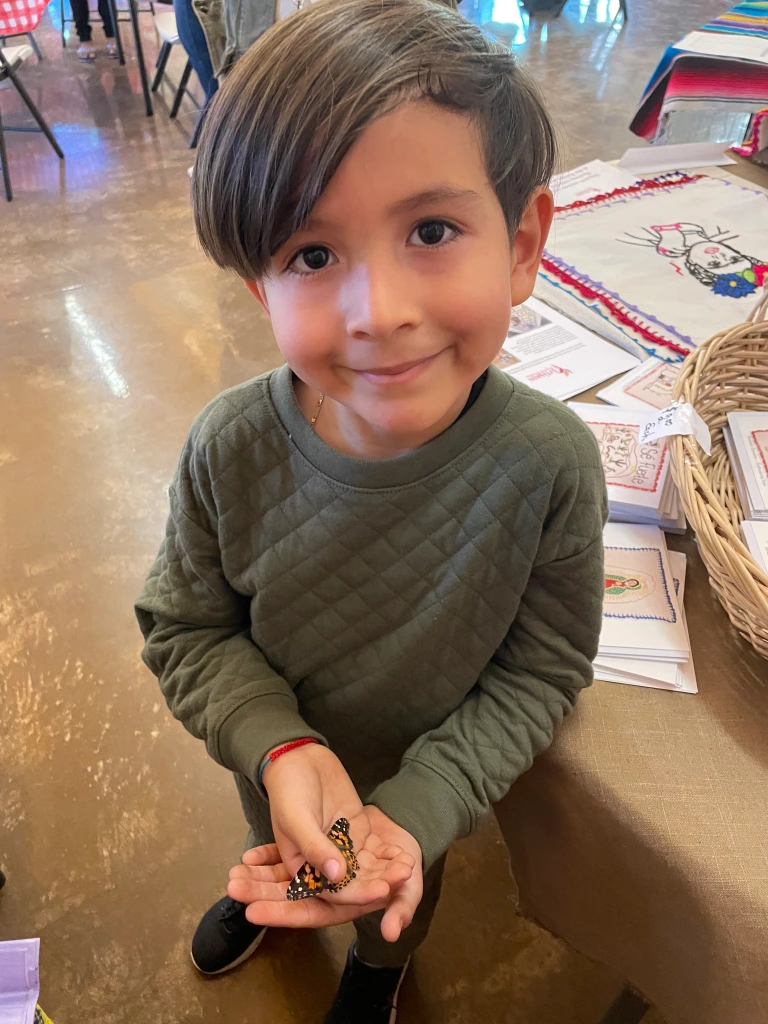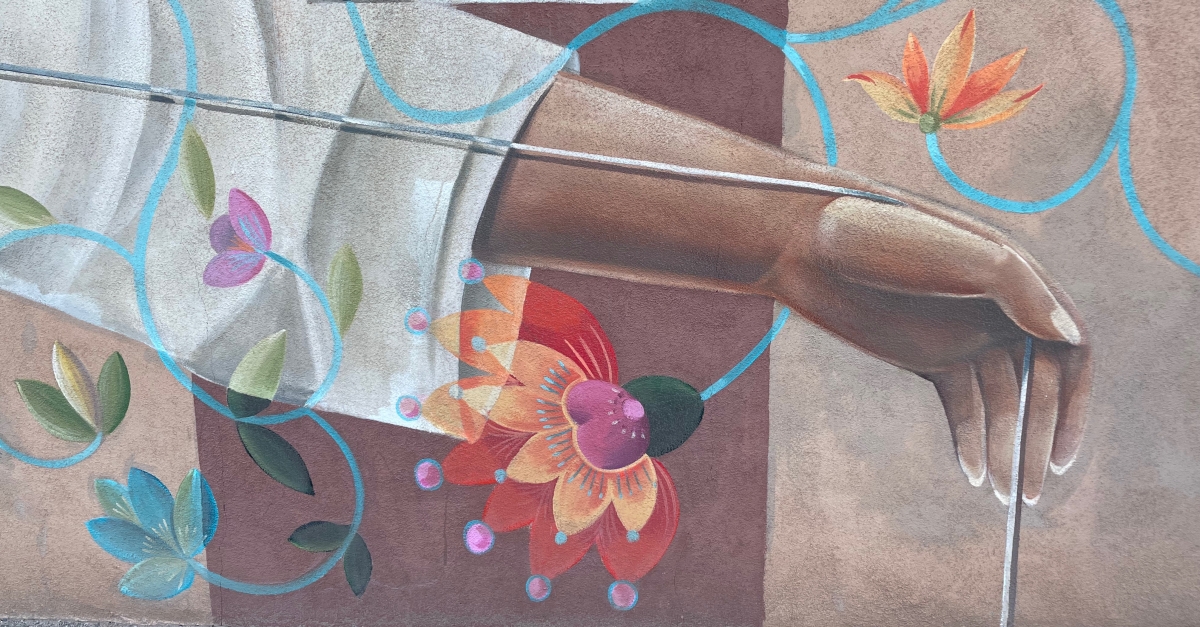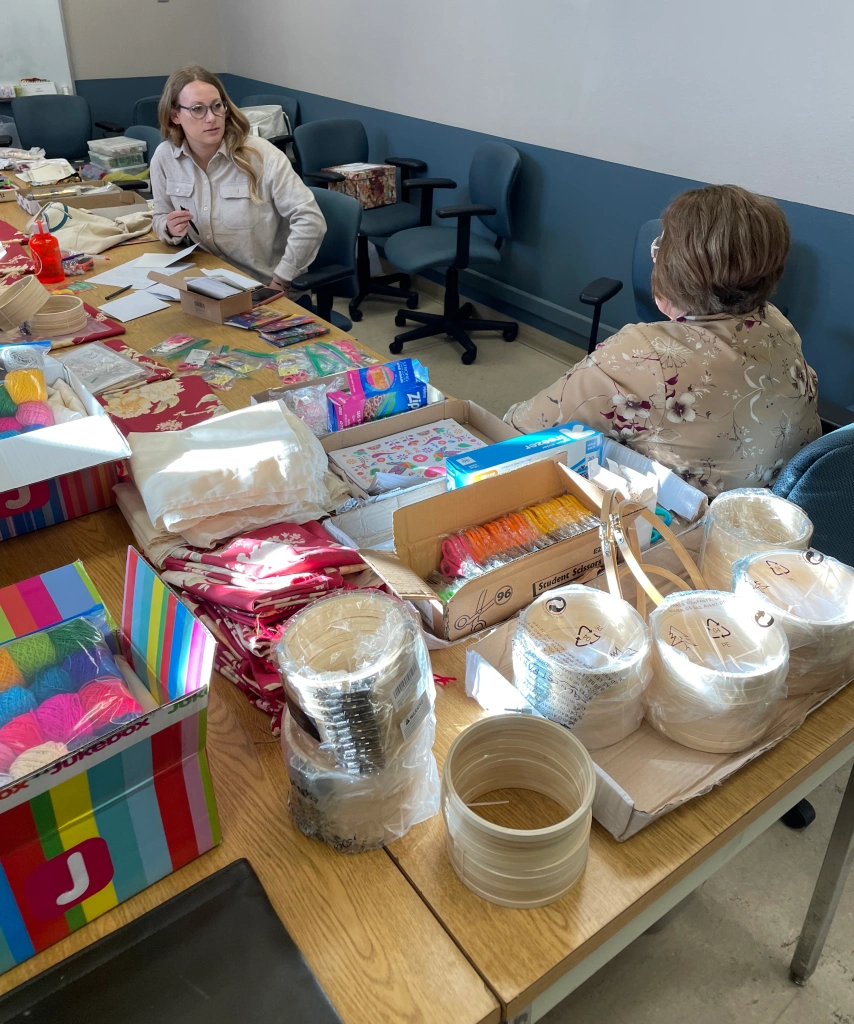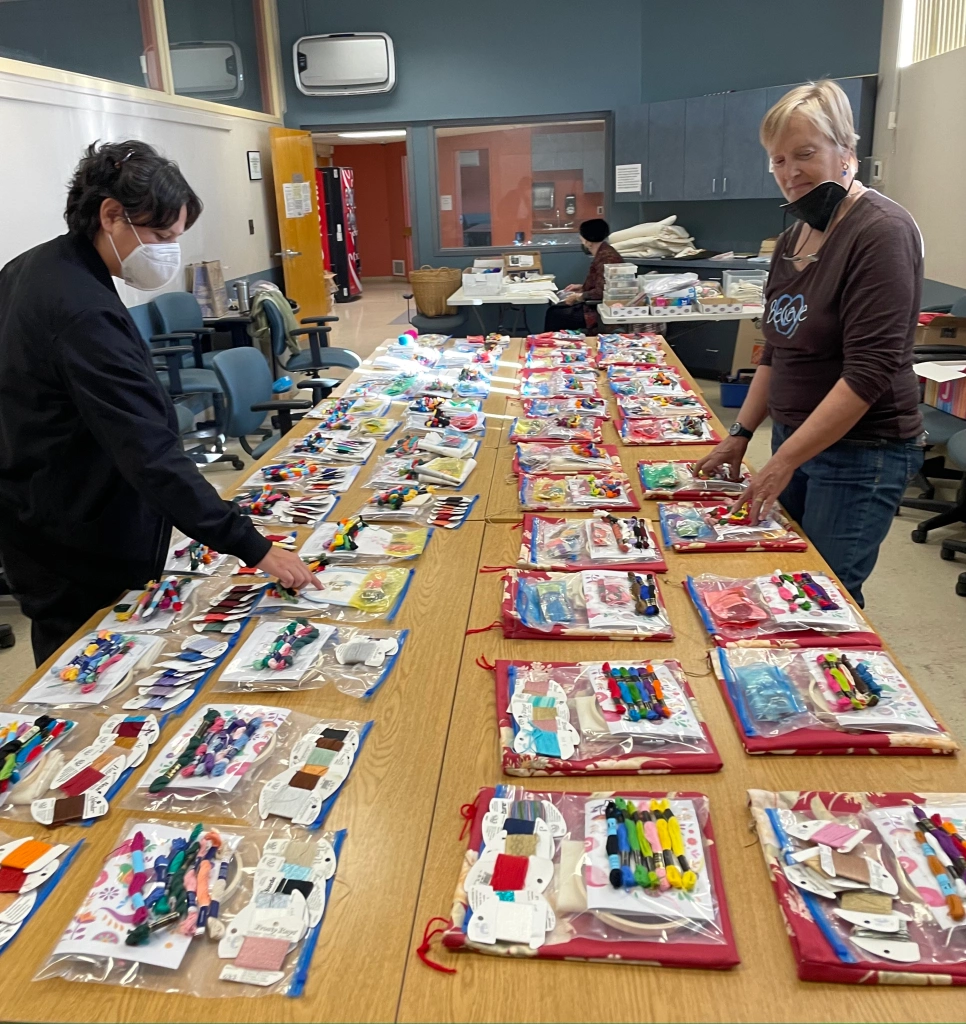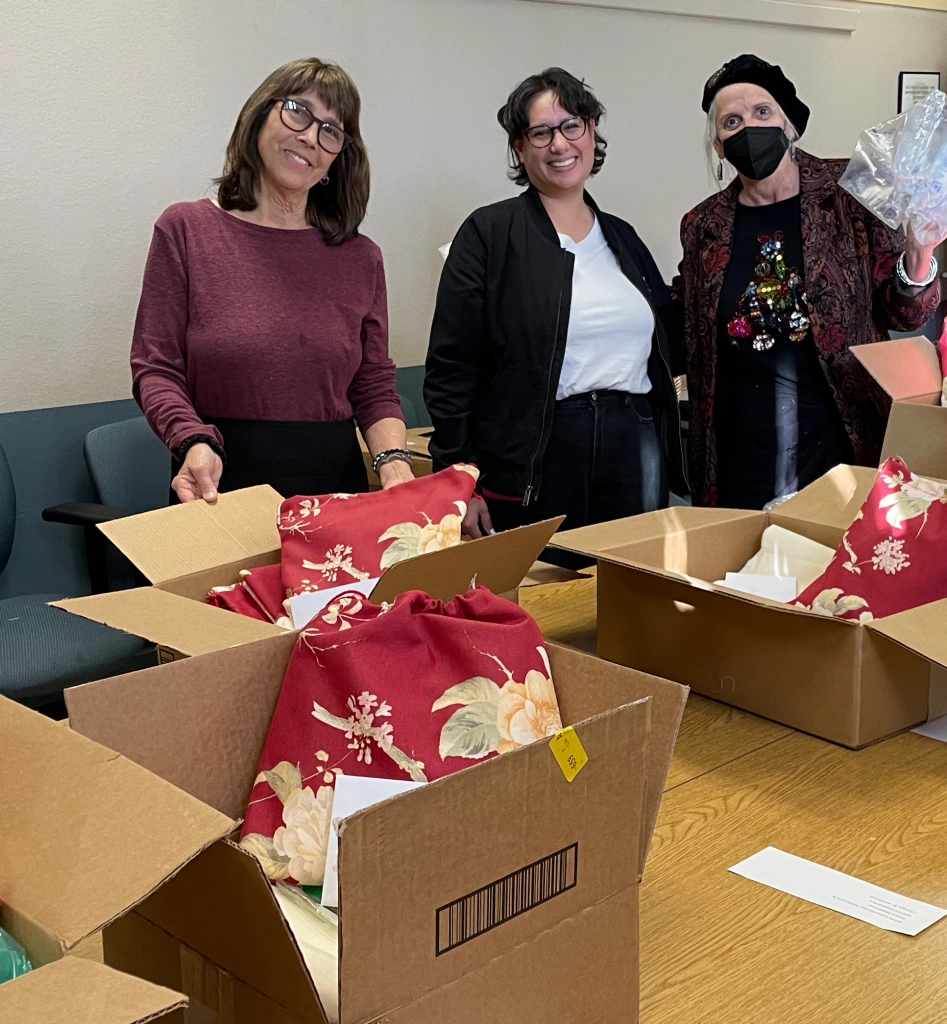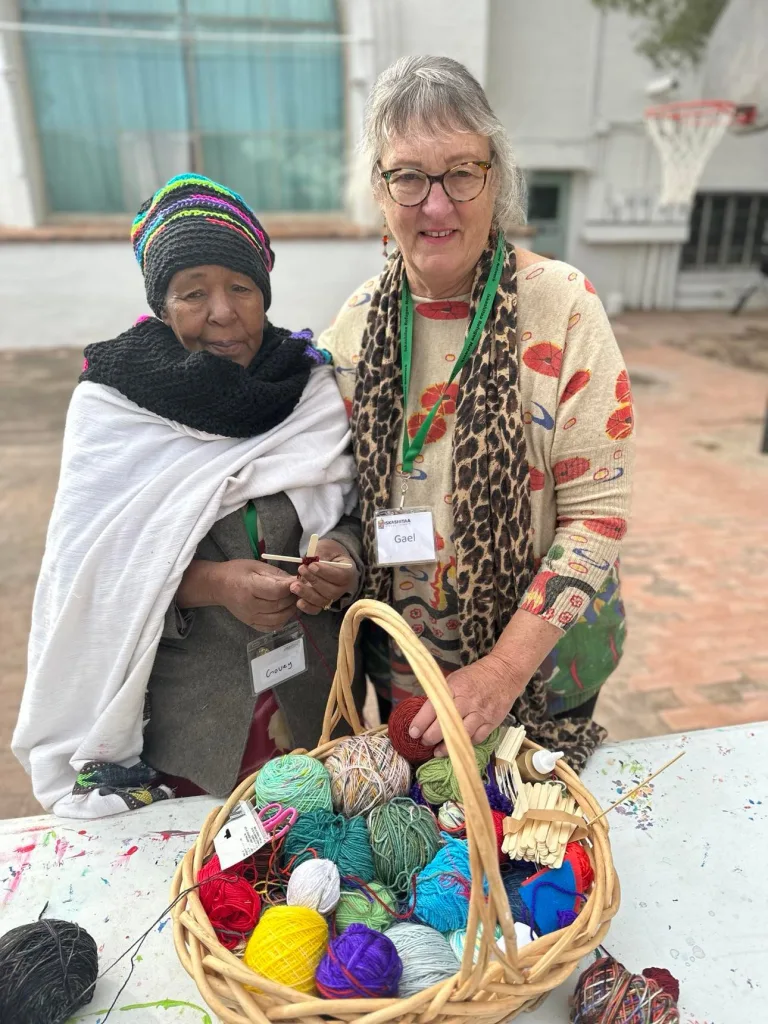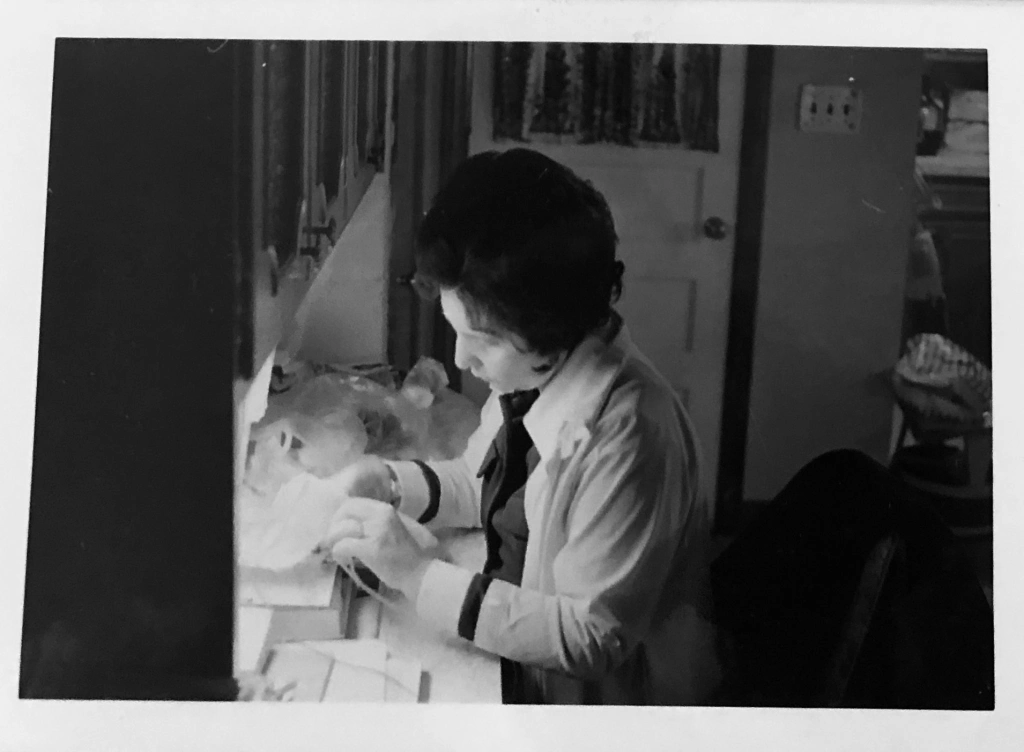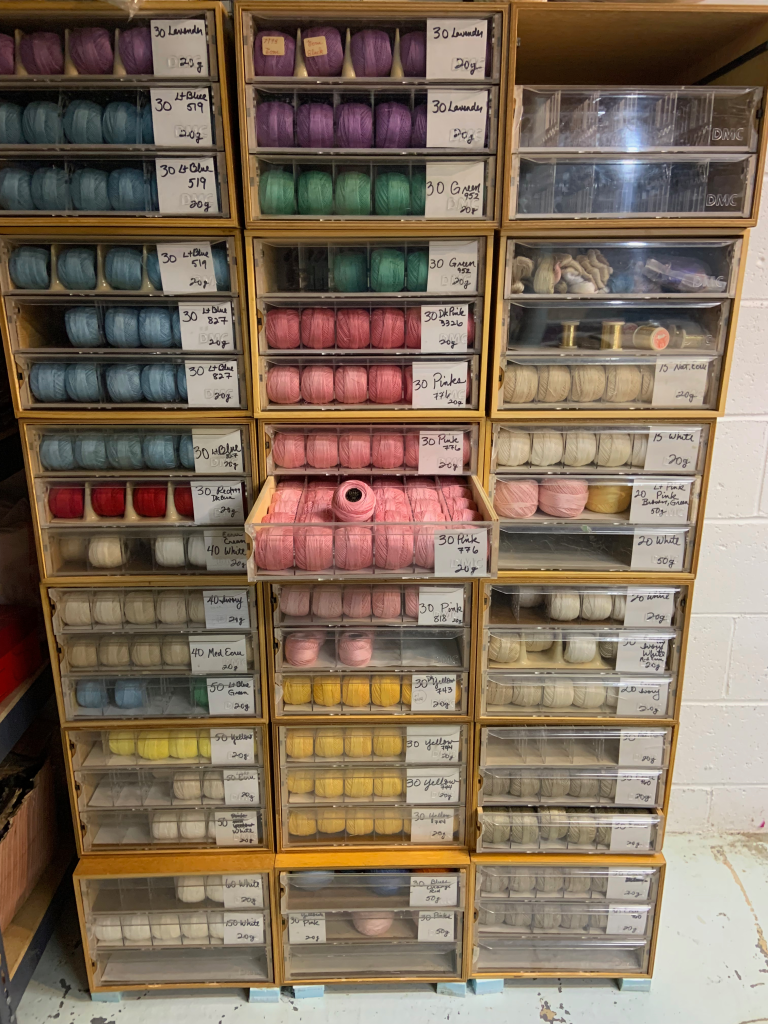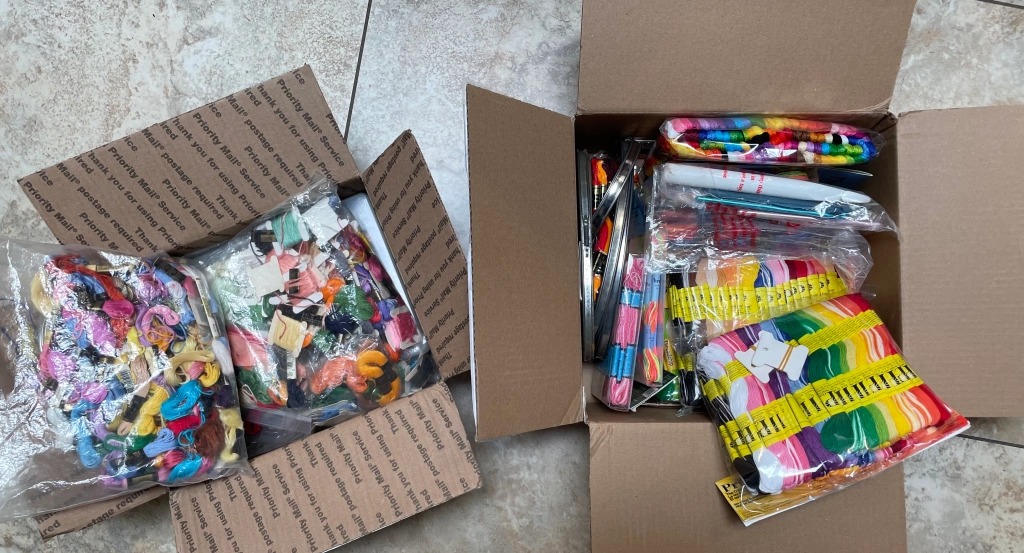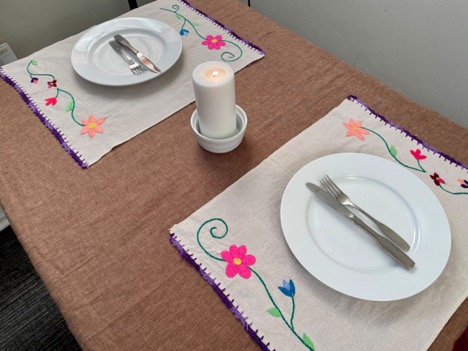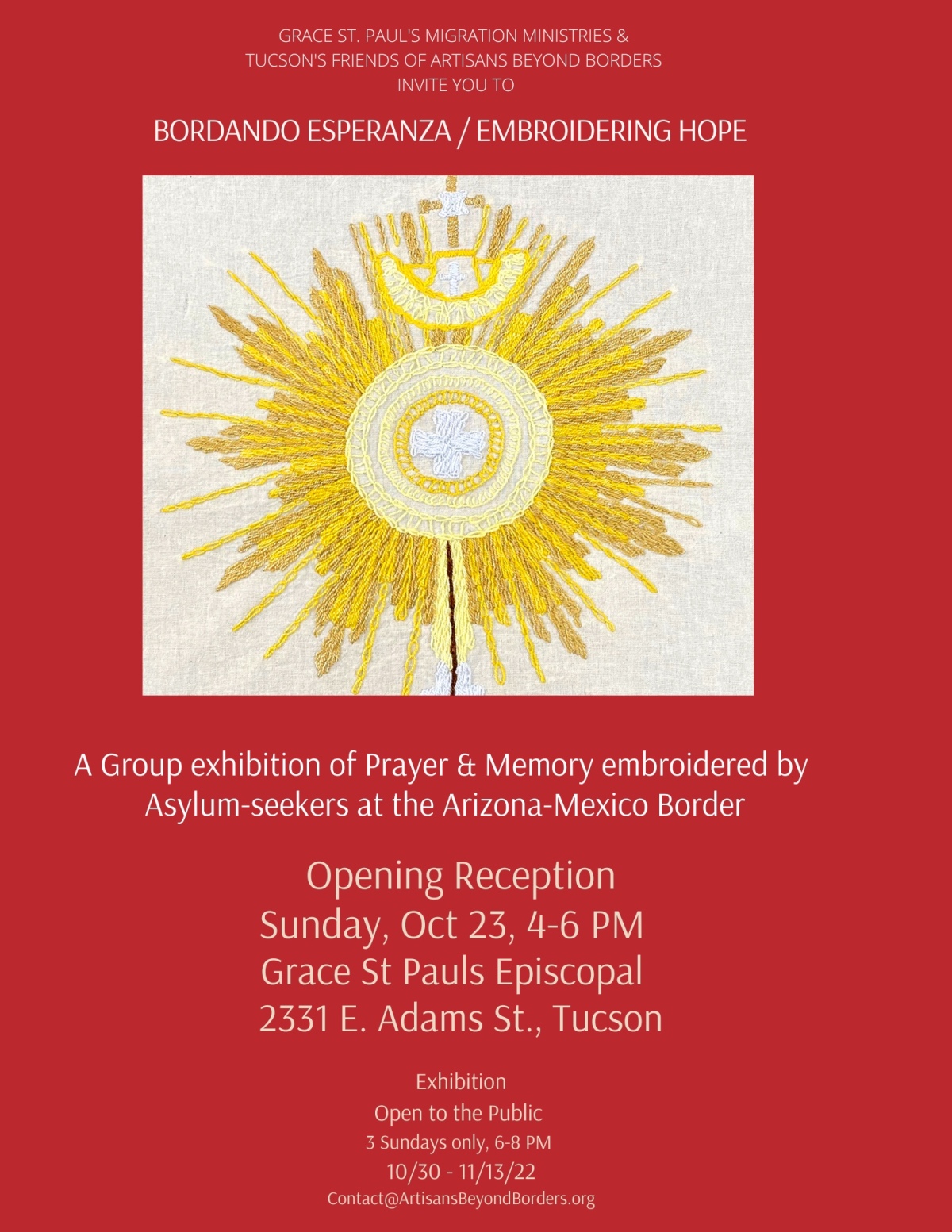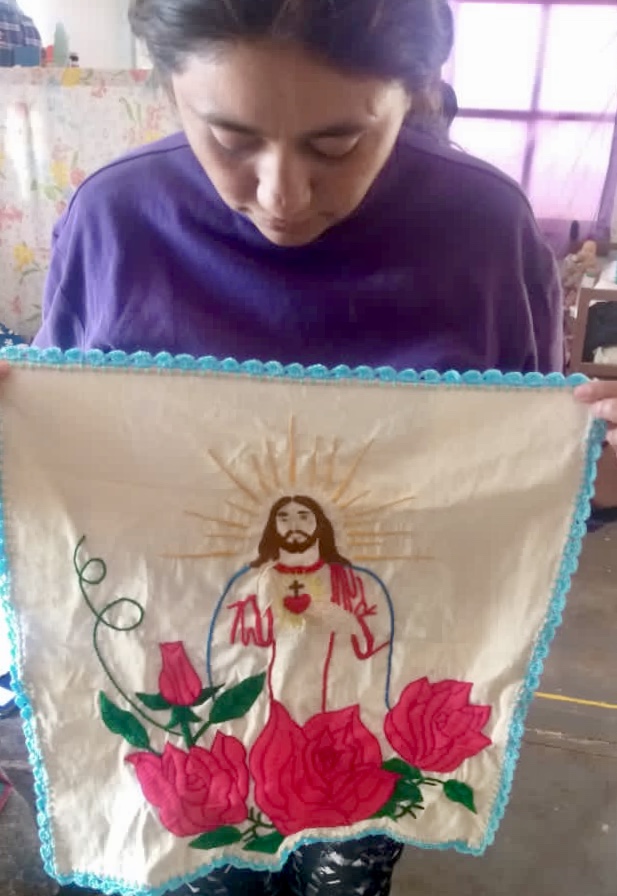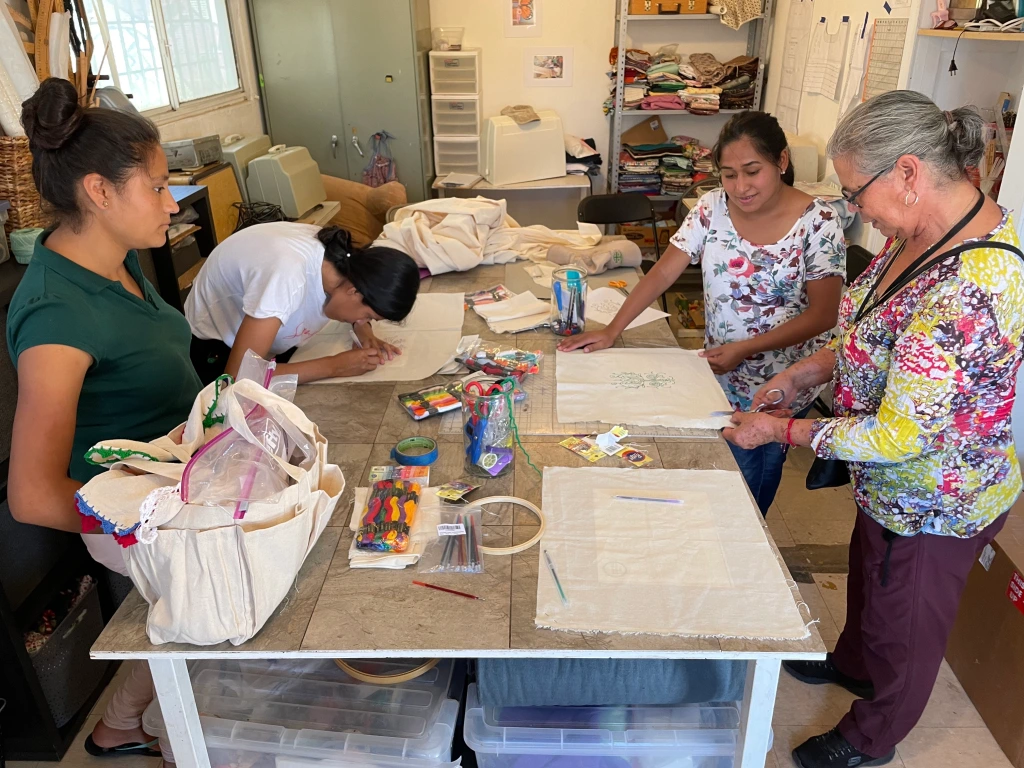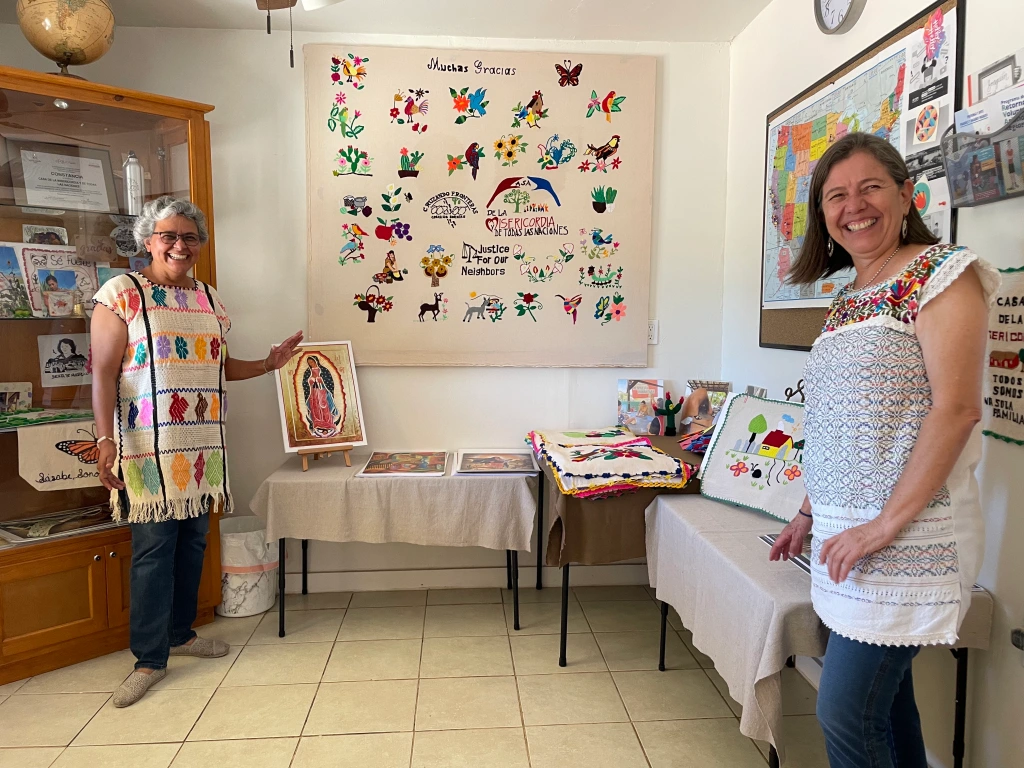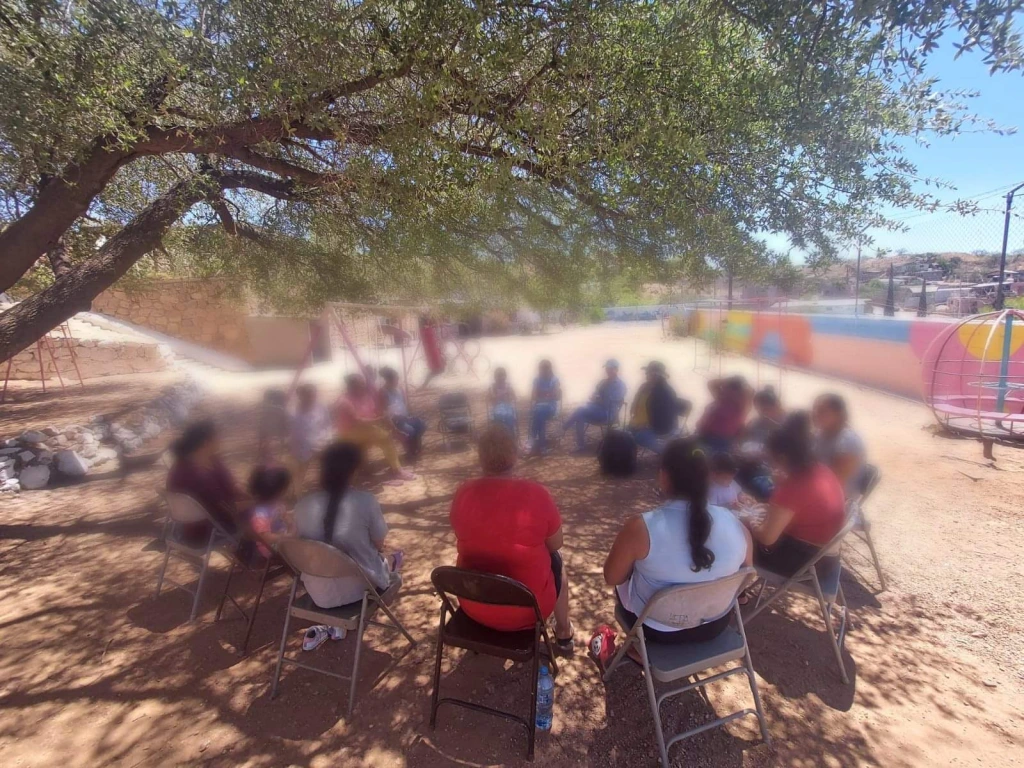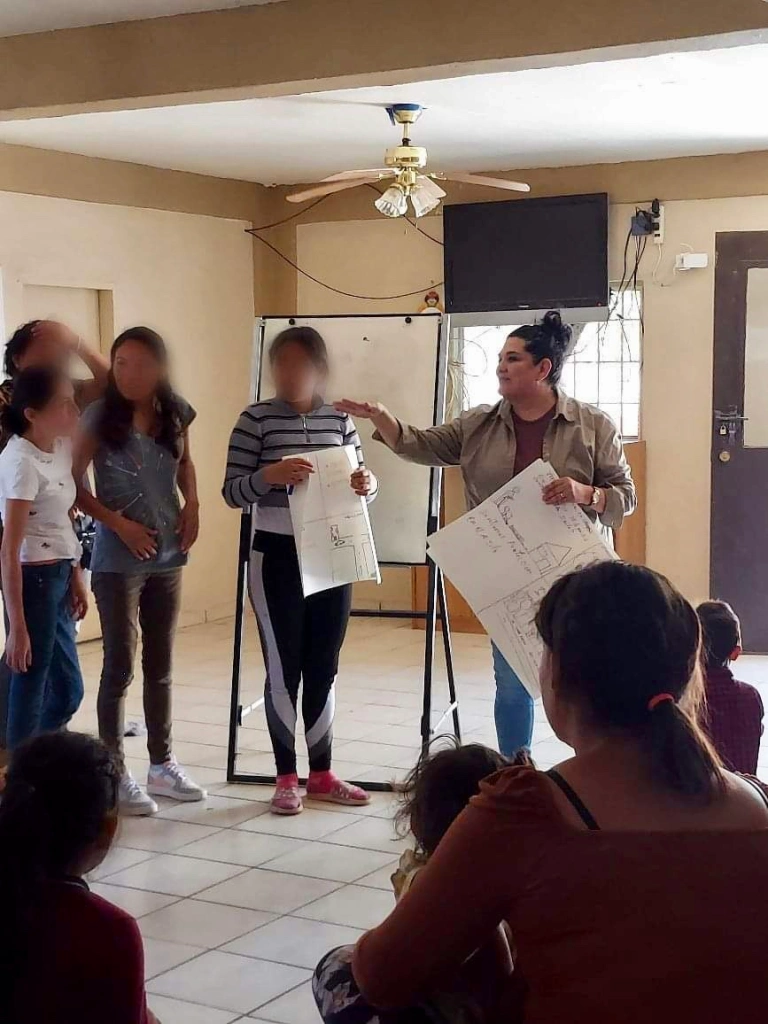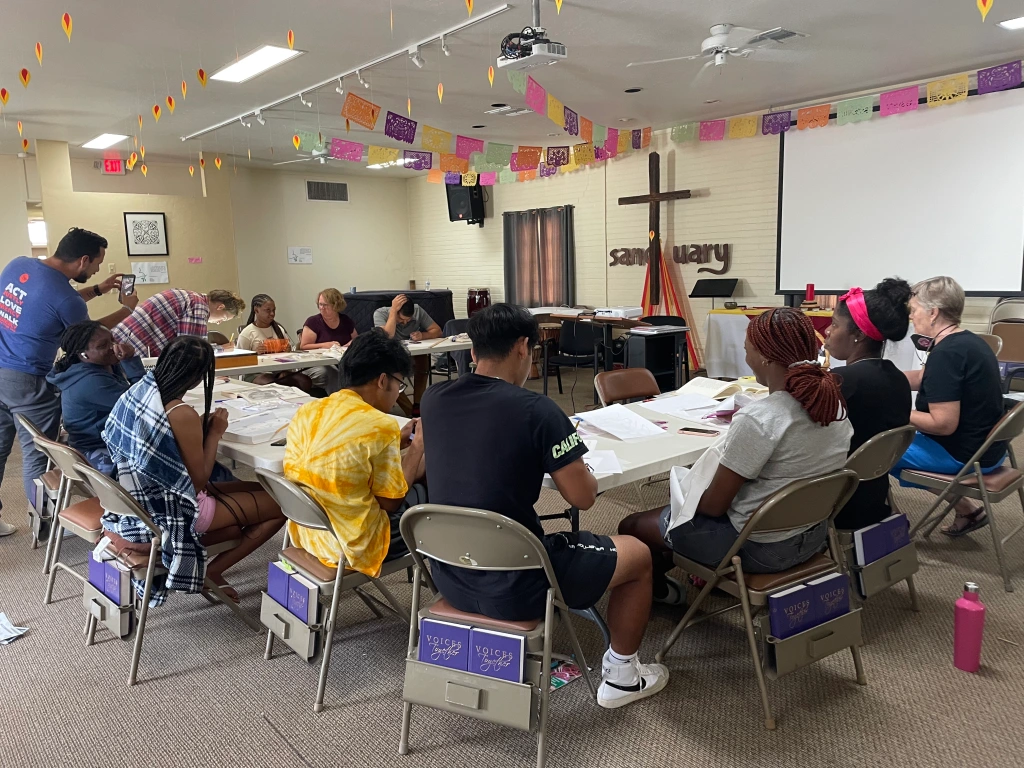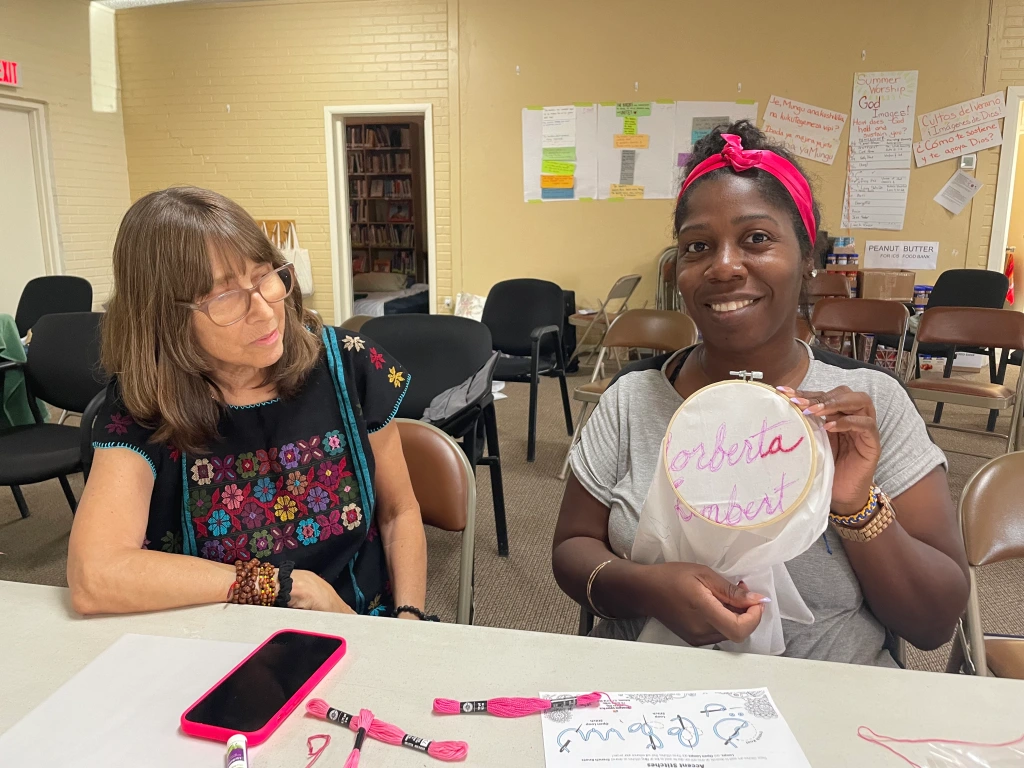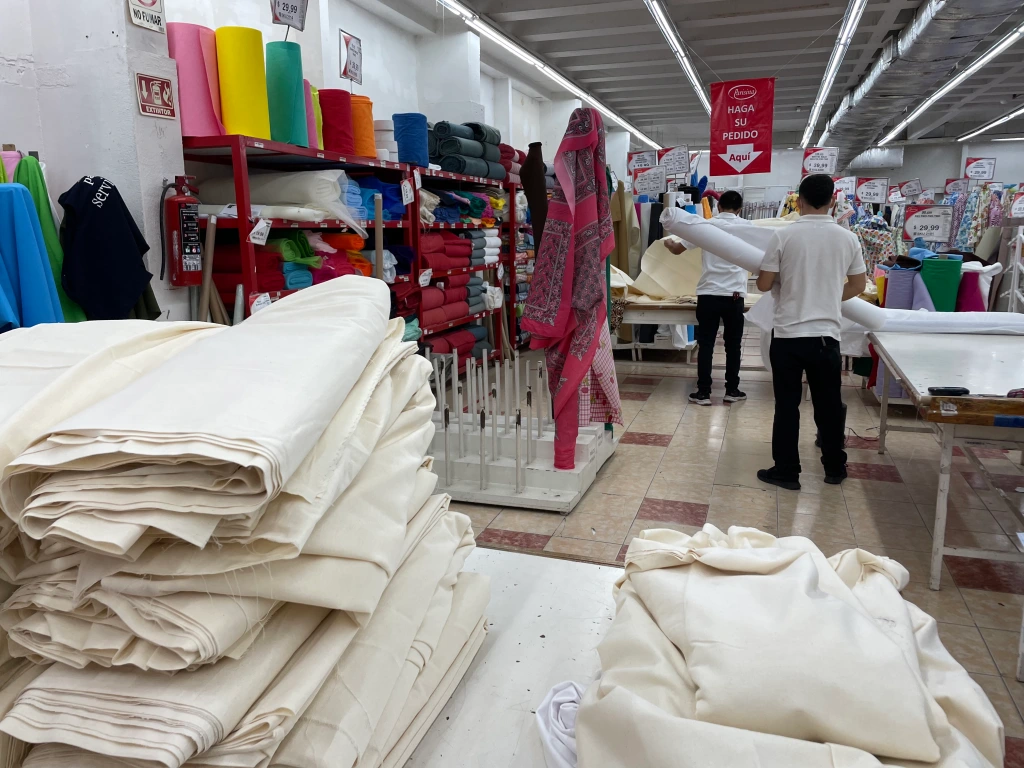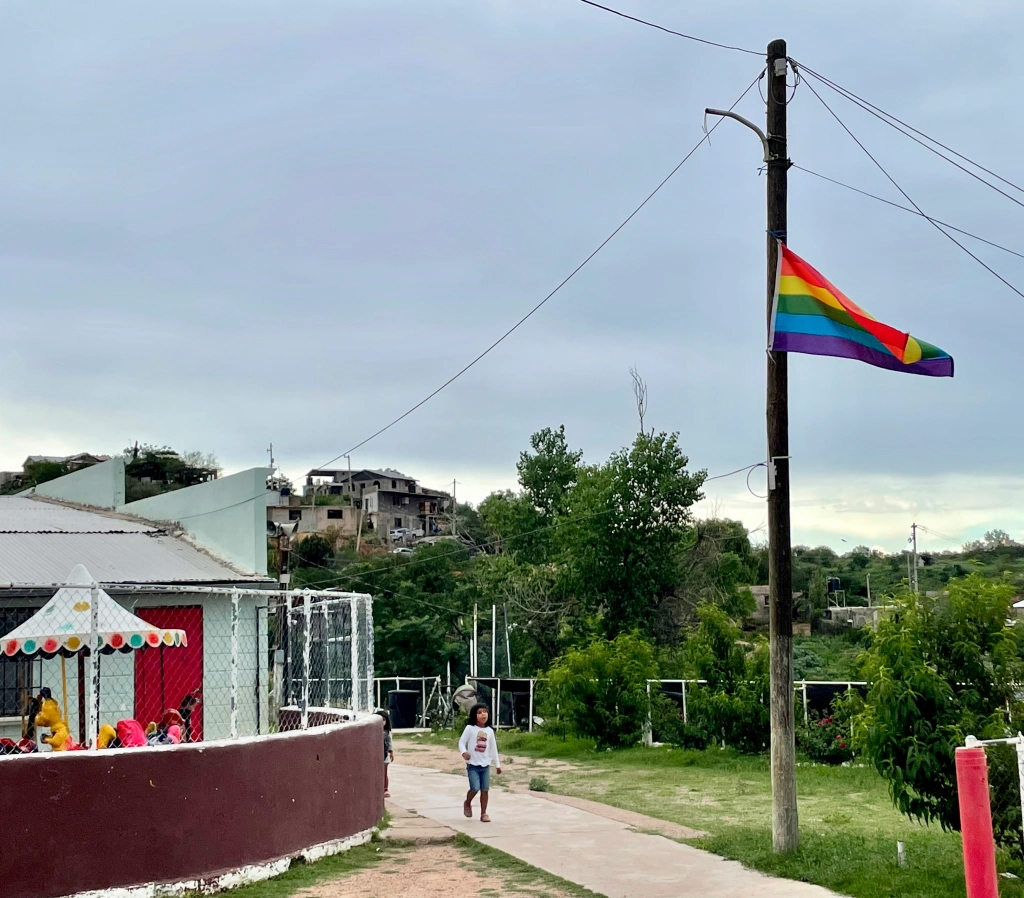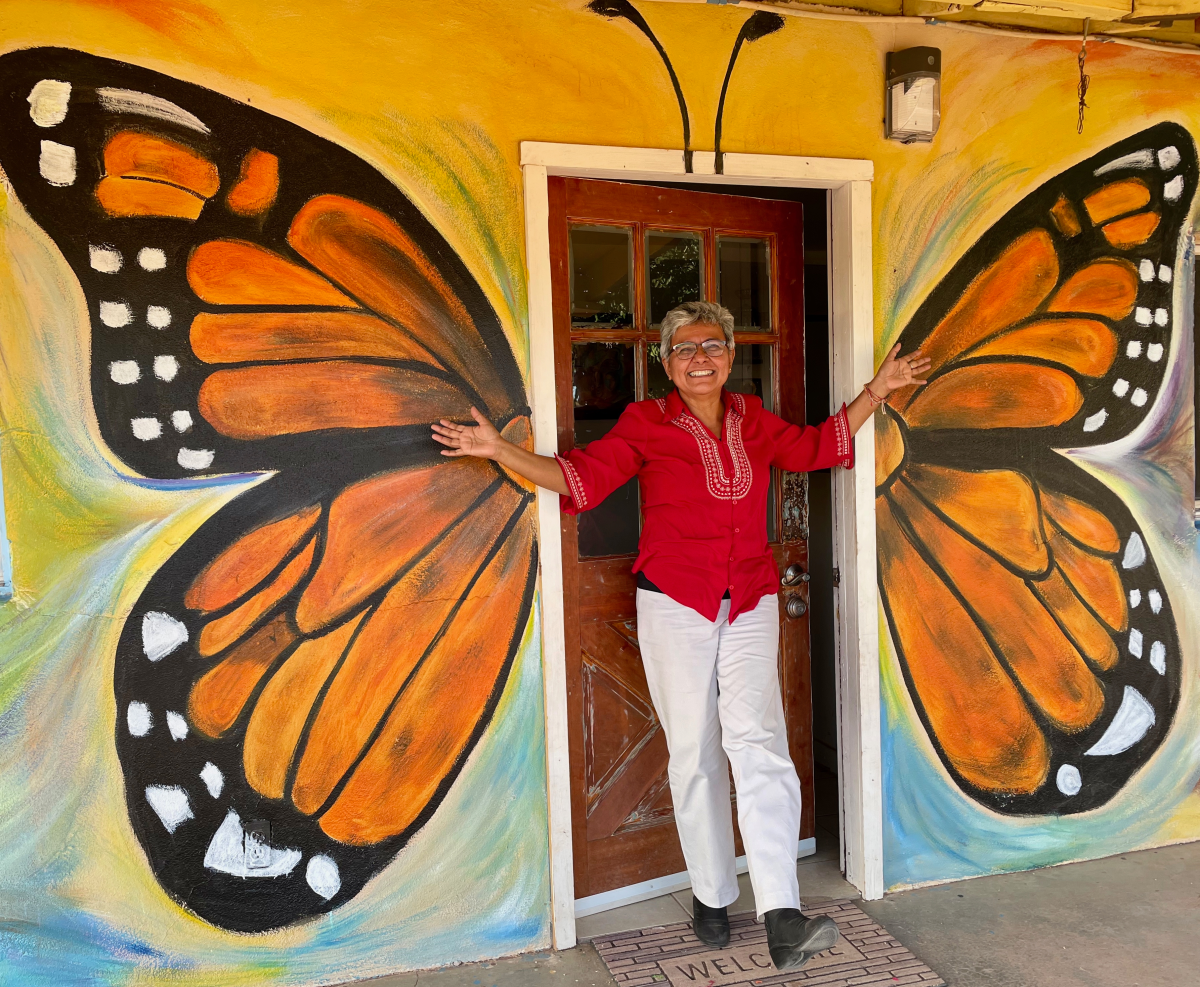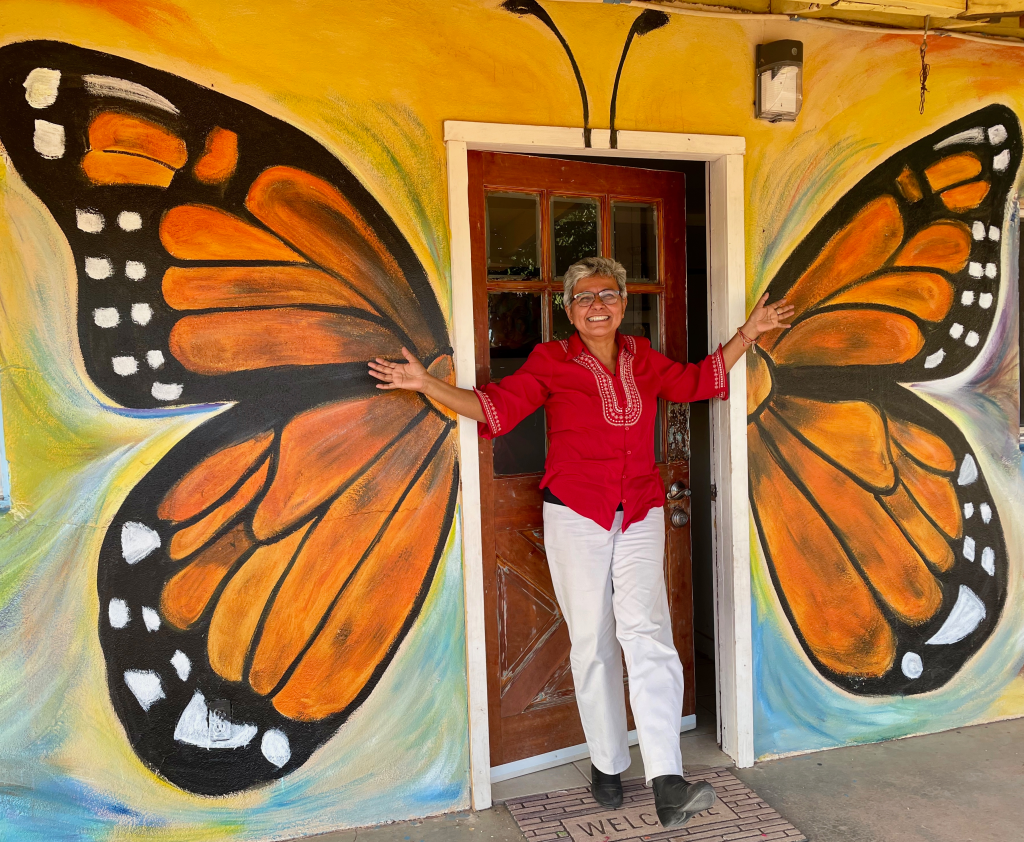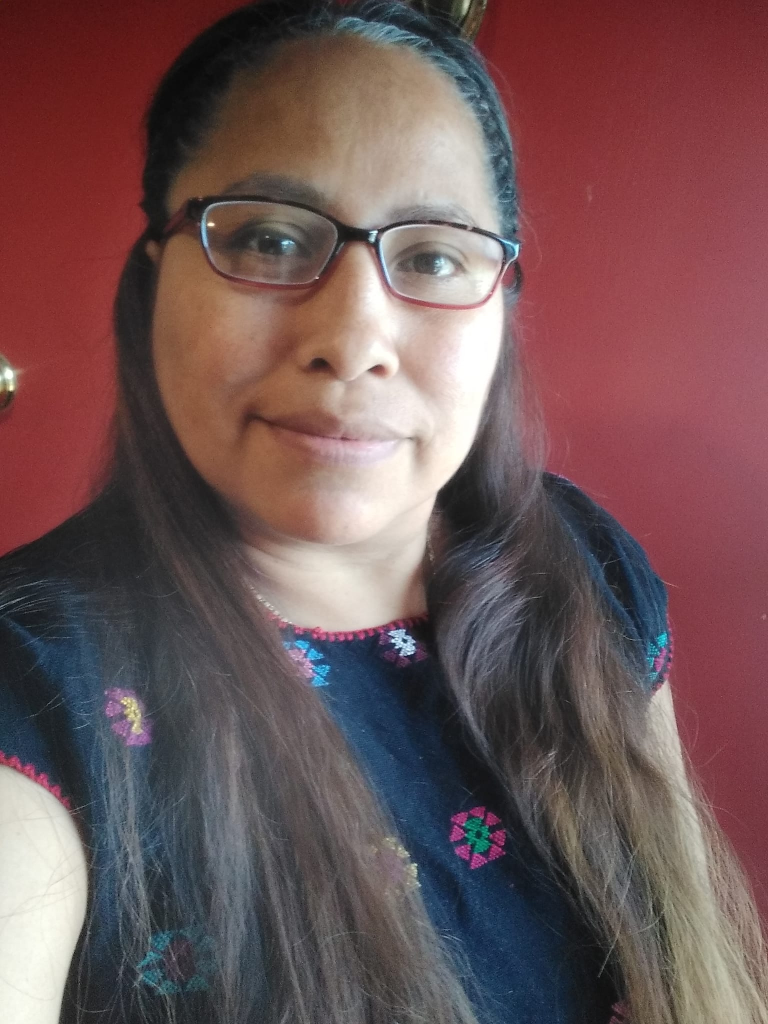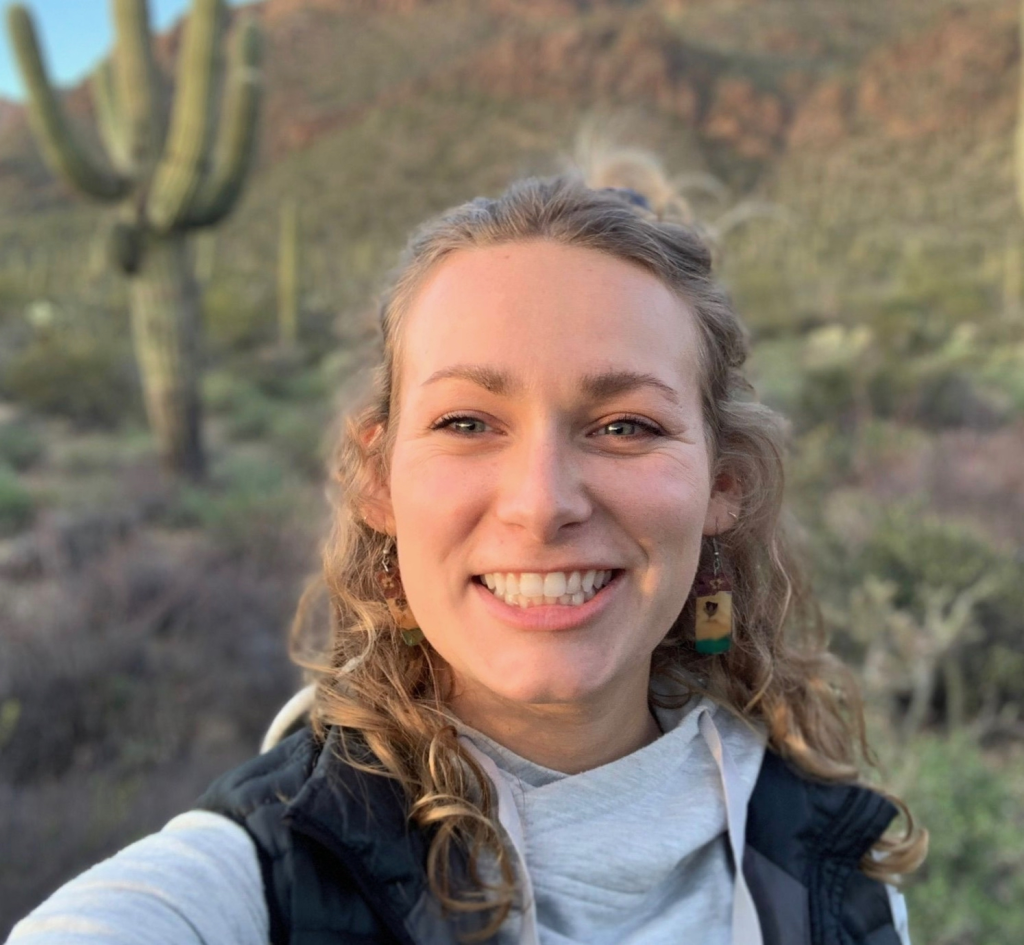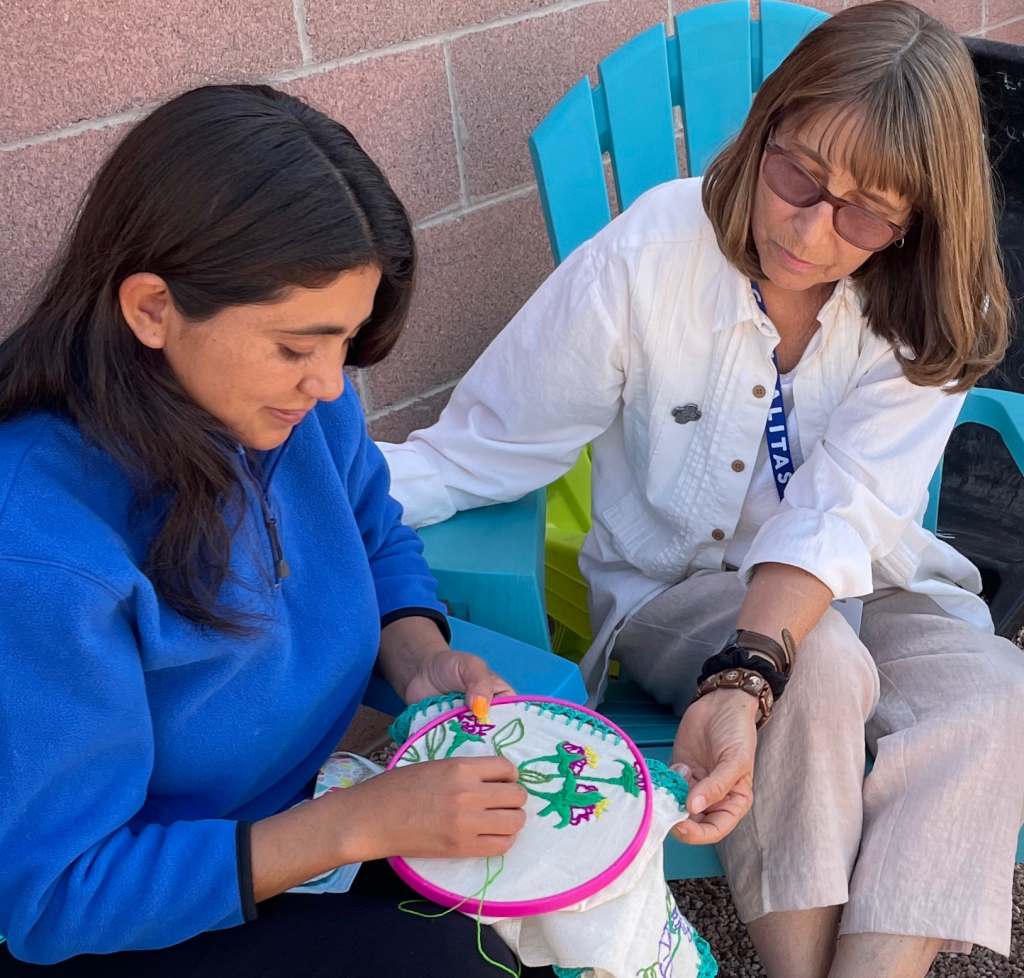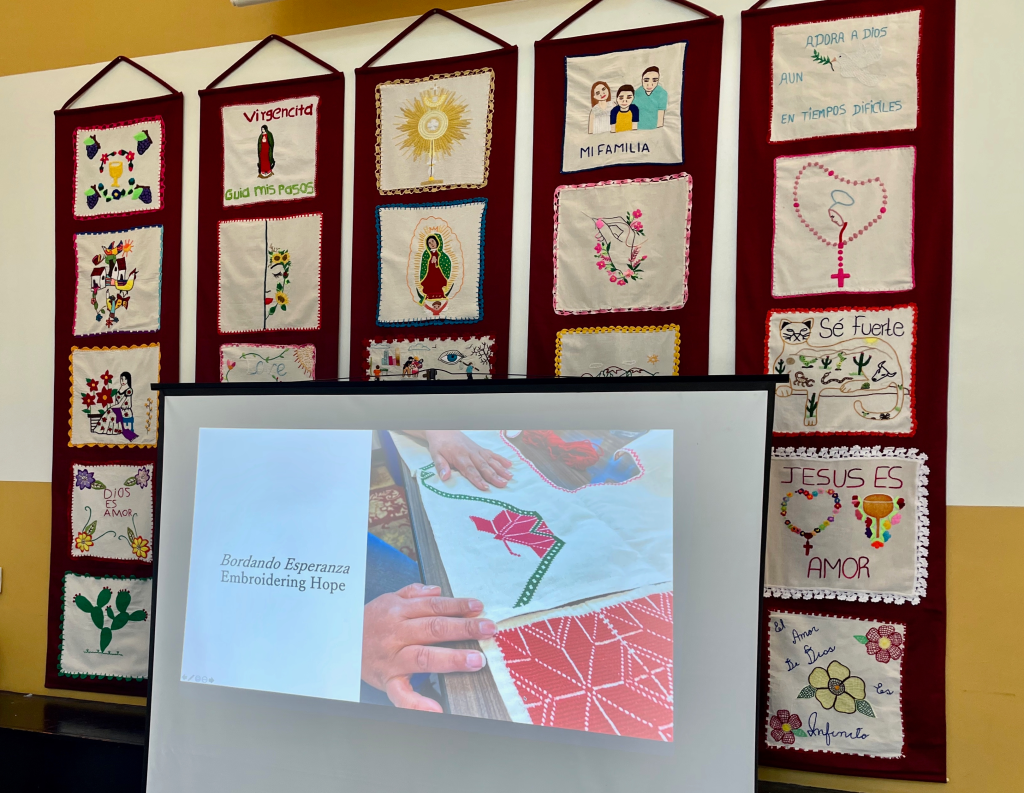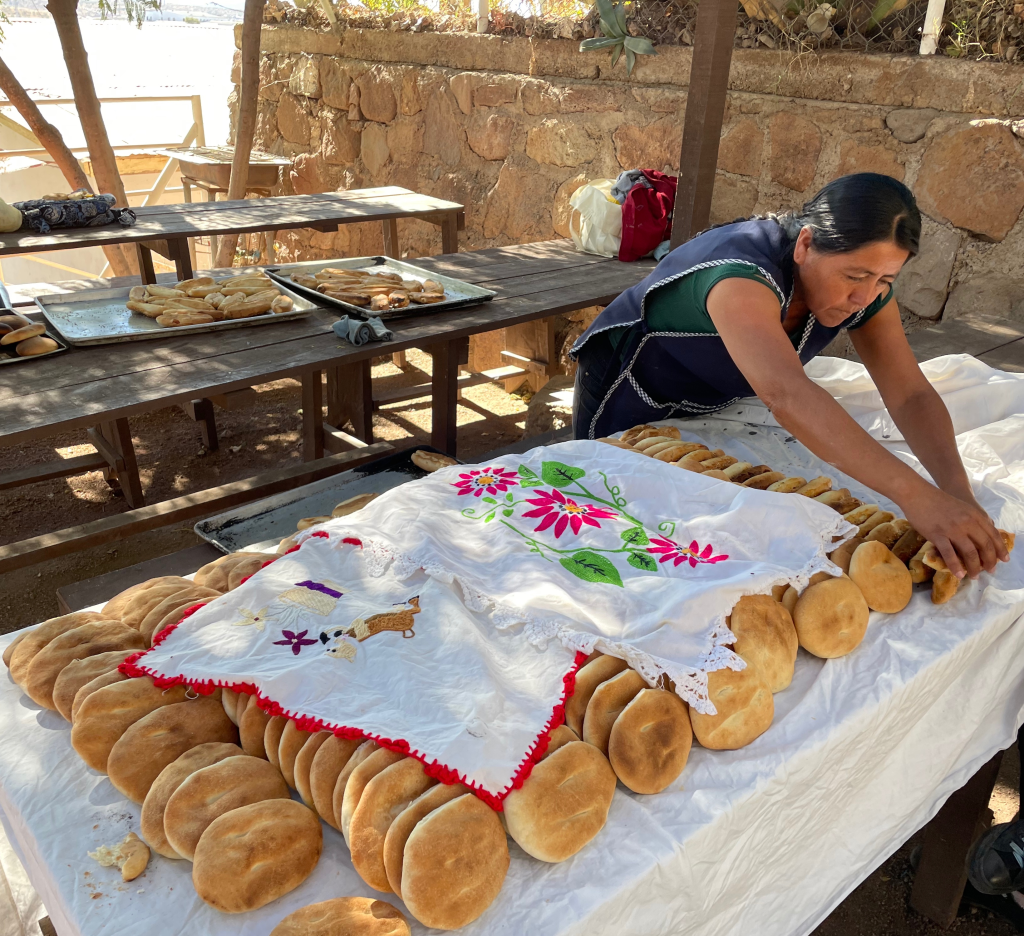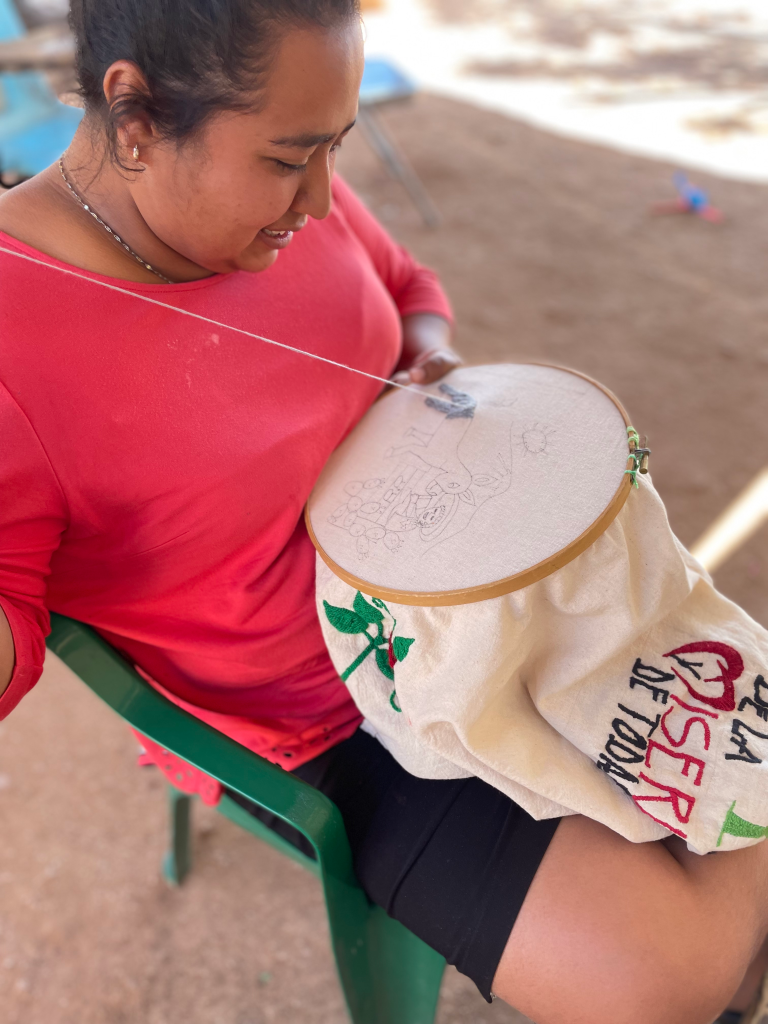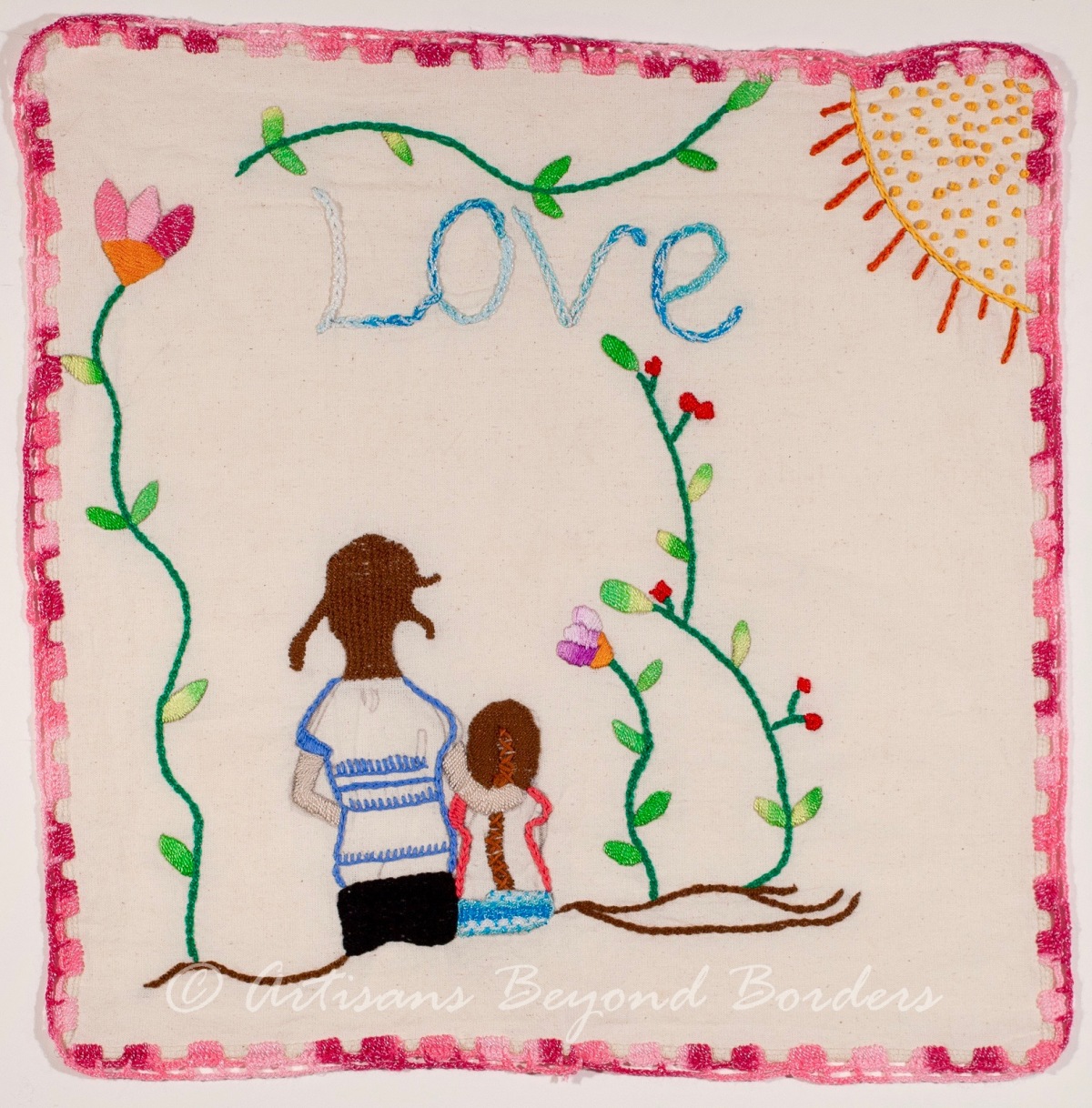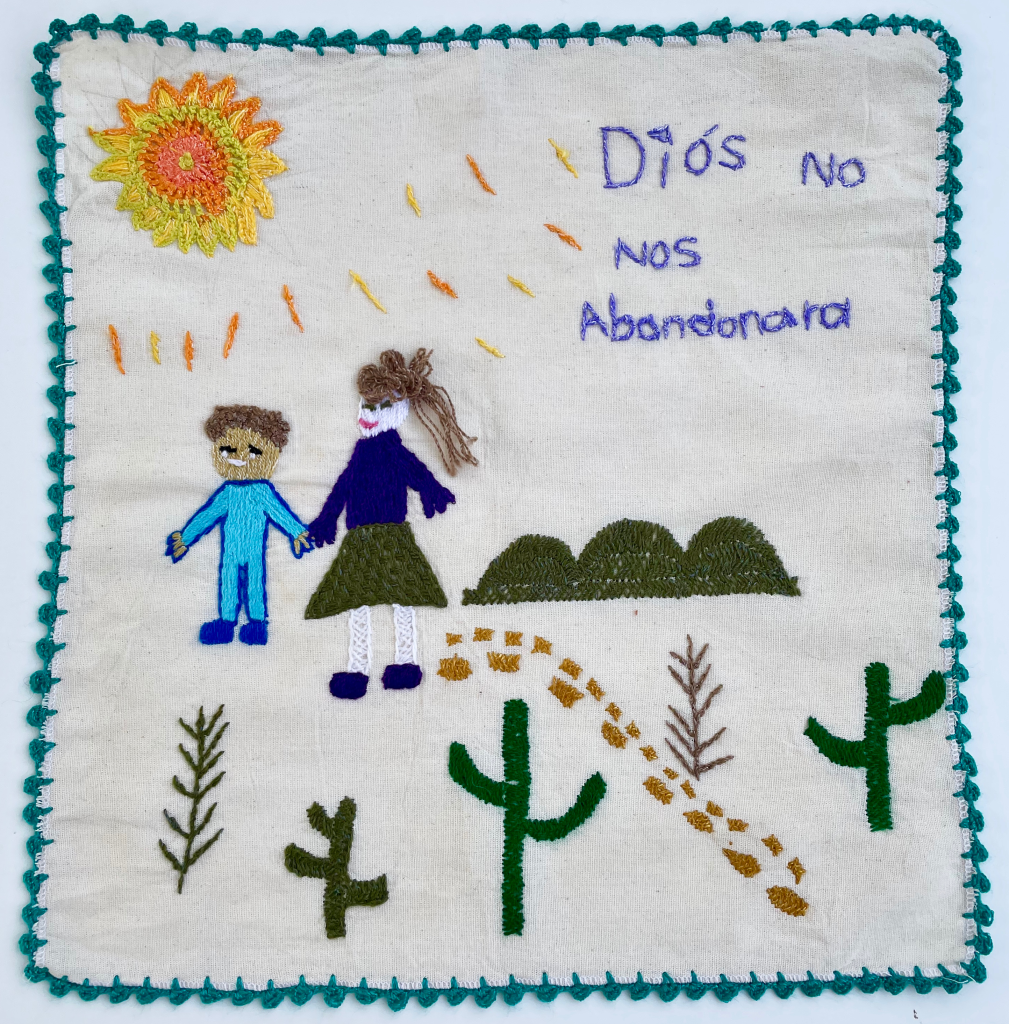
Embroidered at the shelter Casa de las Misericordia y Todas Naciones, by Lorenza
2023 was a dark time for displaced families around the world, yet against all odds, hope endures. As we move forward into 2024, let’s amplify these quiet voices of hope.
Magical Mariposas
When I think about hope, it’s Jhony’s face I see, a child from El Salvador, in a newcomer family, staring in awe at a mariposa alive in his hand. That day, at Tucson’s recent Migrant Memorial Service at Southside Presbyterian, Jhony tiptoed up to me, spellbound with enchantment, and opened his hand. Holding his breath so as not to disturb the fragile butterfly, he looked up and met my eye in silent wonder.
Each year, the Migrant Memorial service remembers and honors the hundreds of people who die each year migrating across our desert. Stones gathered from the desert, marked with the names of the dead are placed, one by one, at the base of the Migrant Shrine in the church’s courtyard. Most of the stones are marked desconocido, to represent the incredible number of unknown Jane and John Doe’s. After every stone was put into place, the Reverend Allison J. Harrington called all the children to her and presented them with a box. When the children opened the box, a kaleidoscope of monarch-colored butterflies swarmed the courtyard, and a collective Oh! rippled through the crowd.
In many cultures, Monarchs represent the souls of our deceased loved ones. For Mexicans, the monarch’s historically large migrations symbolize family unity reminding us that we are all family in the afterlife. According to Wikipedia, the same is true for Egyptian, Indian, Russian, and Irish cultures as well. Above all, Monarchs symbolize Hope, a gift for us all. I won’t soon forget this day and I doubt that Jhony will either.
Make and Give
In a world dead-set on destruction, the most radical response is to create and then create more. Wonder-fully. Fearlessly. Individually and together in solidarity. To create is generative, life-affirming, and naturally healing. To create is to hope.
Recently, Tucson’s Friends of Artisans Beyond Borders teamed up with high school youth to create Maker bags stuffed with healing-centered art supplies and activities for families legally waiting in line for asylum at the port of entry in Nogales, Sonora, Mexico. The youth, here from Bainbridge Island in Washington State with their teachers to learn about the U.S.-Mexico Border, were guided by educators at Globalroutes.org.
At the recently renovated Ward 6 conference building in Tucson, the students bagged supplies and materials for 160 comfort projects ranging from culturally aligned Bordado-embroidery Maker Bags & Mandala designs for adults, to Ojos de Dios – God’s Eyes and pulseras de Amistad – friendship bracelets kits, to backpack journals for school-age kids, and coloring packets for pre-schoolers. Students labeled each bag Un regalo para ti – A Gift for you and then added bows. The students were dedicated and organized.
These well-thought-out Arte y actividades projects (Craftways) were put together based on experience with families in trauma at Casa Alitas, Tucson’s main shelter for asylum seekers. As volunteers, we all agreed that it was time for the Craftway kits, good medicine for the heart, hands, and soul, to go directly to families waiting at the border entrance. With enough donations secured, we hope that our colleagues at Voices from the Border can carry the practice forward.
At the Port of Entry
At the De Concini port of entry in Nogales, tense families packed in shoulder to shoulder against one wall. At first, people seemed a bit unsure, but the more projects we gave out with no expectations, the more relaxed the crowd became, and the more smiles ensued. Families were surprised and delighted to be offered a choice of projects.
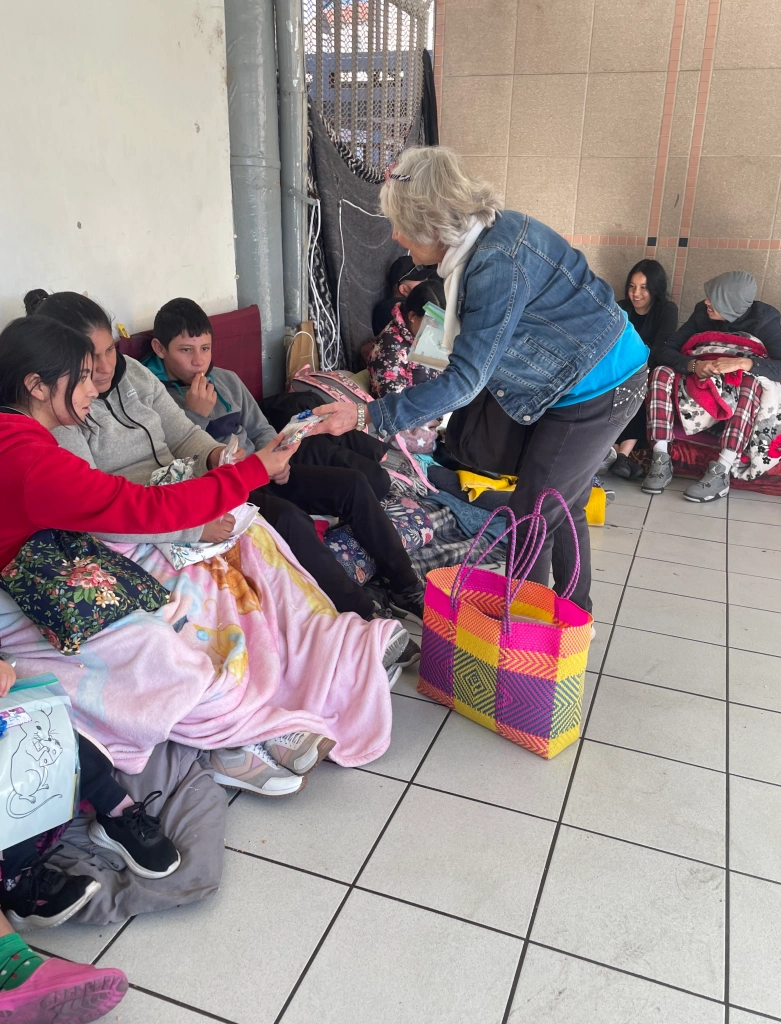
Volunteers from Artisans Beyond Borders (ABB), Tucson’s Grace St. Paul’s Episcopal Migration Ministries, Tubac’s Border Community Alliance, and as far away as Marana teamed up with volunteers Pancho and Linda from Voices from the Border.
It was a special day for this writer. Separated by the wall and the pandemic, it had been forever since I’d seen Pancho, our first partner in Mexico. From the start of ABB, in 2019 when we volunteers first began to do arts outreach in the streets, Pancho, a frontline nurse at the border and a great friend to the people, was the first to jump in and help us organize, translate, and build trust. Whenever we felt like we couldn’t do enough, Pancho reminded us: “Poco a poco” – you do what you can.
Speaking of doing enough, the families that we served that day were under a roof and had blankets to ward against the cold while they waited at the port of entry. By contrast, families with little or nothing are being dropped off now by the cartels at remote areas along the wall. They are desperate. Every day, local helpers try to bring enough blankets, warm clothing, food, and water to families stranded at the wall. We all do whatever we can. Please consider donating directly to our helpers on the front lines:
The Green Valley – Sahuarita Samaritans
No More Deaths – No Mas Muertos
Creative Community at the Shelter
After all of the Arte y actividades were passed out, we went to the posada celebration at the shelter La Casa de las Misericordia y Todas Naciones. Las Posadas is a traditional Mexican religious festival commemorating Mary and Joseph’s migration from Nazareth to Bethlehem in search of a safe place for Mary to give birth to Jesus. In addition to tamales and traditional drinks, shelter youth gifted all the visitors with sweet performances and dancing. Whenever I visit this shelter, I always leave feeling invigorated and spiritually replenished. It’s like drinking the purest water from a deep well of friendship and family.
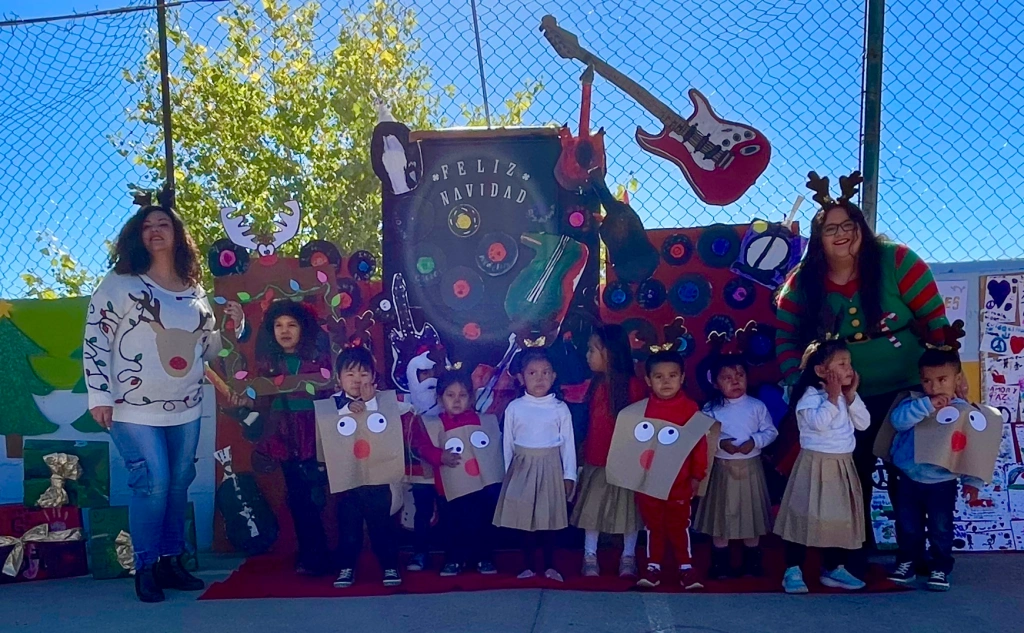
The shelter’s weaving studio Artisans Beyond Borders established in the summer of 2023 in collaboration with shelter staff, allows guests quiet respite, focus, and flow. Guests have learned the basic techniques and best practices for handlooming patterned mug rugs (coasters), Diamond Twill bookmarks, and more. One-of-a-kind and limited, some can be found for sale in the office at the shelter. They are also offered for donation while supplies last at ArtisansBeyondBorders.org website.
One of the coolest skills that guests picked up this year was backstrap weaving taught by Karen, an ABB volunteer from Marana who has studied with master weavers around the world.
We visitors from the U.S. come as guest teachers. As long as donations to ABB hold out, we can pay a small stipend to keep an on-site teacher at the community. Early on, after our first teacher rotated out, Mayra became the next weaving teacher. Mayra quickly surpassed basic skills and went on to teach guests to weave on handlooms and now backstrap weaving. Her patient and loving presence will be dearly missed when it comes time for her to leave for the U.S. The tradition “each one, teach one,” we’ve instilled at the shelter helps Mayra pass the baton to the next teacher.
Embroidering continues to flourish at la Casa de las Misericordia y Todas Naciones, and we are seeing more story cloths as time goes on. I believe we see more now because the makers feel truly safe at this gated shelter. They finally have the space to breathe and the support to have their feelings.
If they don’t feel confident enough to draw what they see in their imaginations, they feel comfortable asking for assistance from Director Sister Lika Macias, a painter, who can help them realize their vision. Similar to story cloths found in other conflict areas around the world, the embroiderer stitches her or his story of migration and loss, memory, and prayer. Deeply personal and true, the maker can begin to heal in the process.
Bordando Esperanza – Embroidering Hope Exhibition
If you are in the Tucson area and you are interested in story cloths, especially as they relate to the cultural history of our borderlands, faith, and migration, there’s still time to view the exhibition “Bordando Esperanza- Embroidering Hope, 75 individual mantas embroidered by asylum seekers, at Border Community Alliance in Tubac where the exhibition has been extended through January 2024. This Winter, the Exhibition will be at Suffolk University in Boston. We are planning for Miami University in the Spring and are reserved for the University of Chicago in the Fall of 2024.
If you’d like to help support Wendy Lopez and her family, our embroiderer from El Salvador (now in Tucson) who created the central story cloth of the exhibition, visit our Direct-to-Artisan sales page: Her contemporary feminine work is super popular and she takes commissions. This is a wonderful opportunity to support artisan families to survive in the U.S.
To everyone who has supported the Friends of Artisans Beyond Borders throughout 2023, mil gracias – thank you! None of this would have been possible without your support.
May Peace prevail in the year to come.
V. James and Friends of Artisans Beyond Borders
1/1/2024

